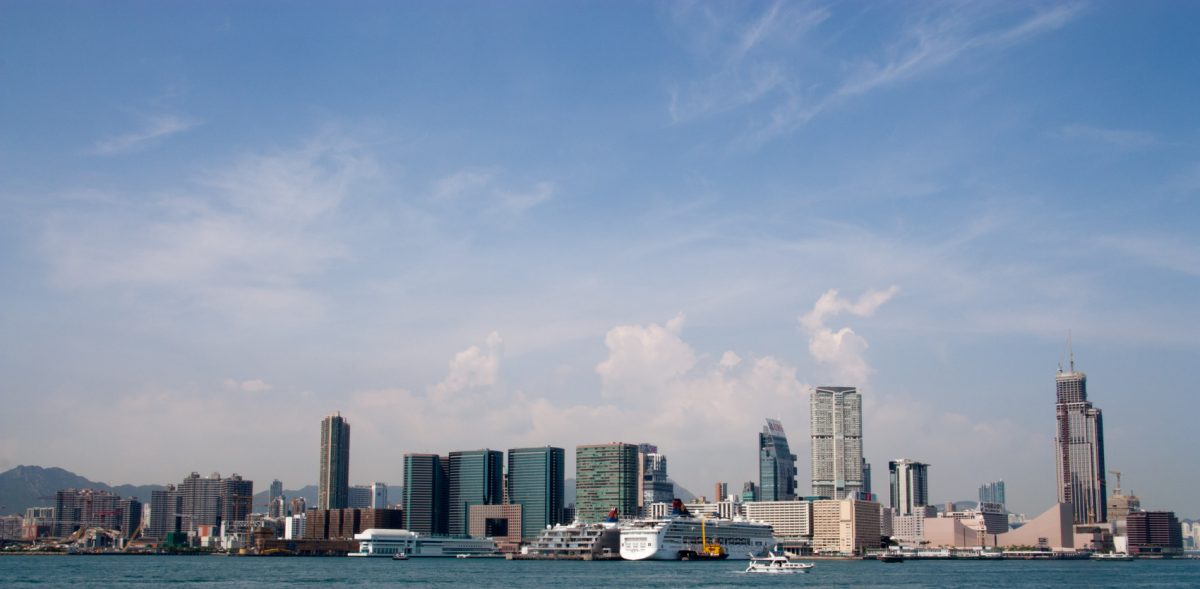First posted on TVG in China, 2016. I’m currently archiving old posts onto one blog.
I’m back in the UK now, meaning the travelling part of this blog is coming to a close but before it is completely over, I still have my summer after Beijing to write a little about.
I spent the summer working in as a team of English teachers running a summer programme for kids in the new territories. I won’t be covering much of the time spent in the school, but will touch on it a bit. Instead I want to write about my impressions of the city as a whole.
I’m going to start from Beijing, as there’s a fun story for the journey down south. In short, my train got delayed.
By 17 hours.
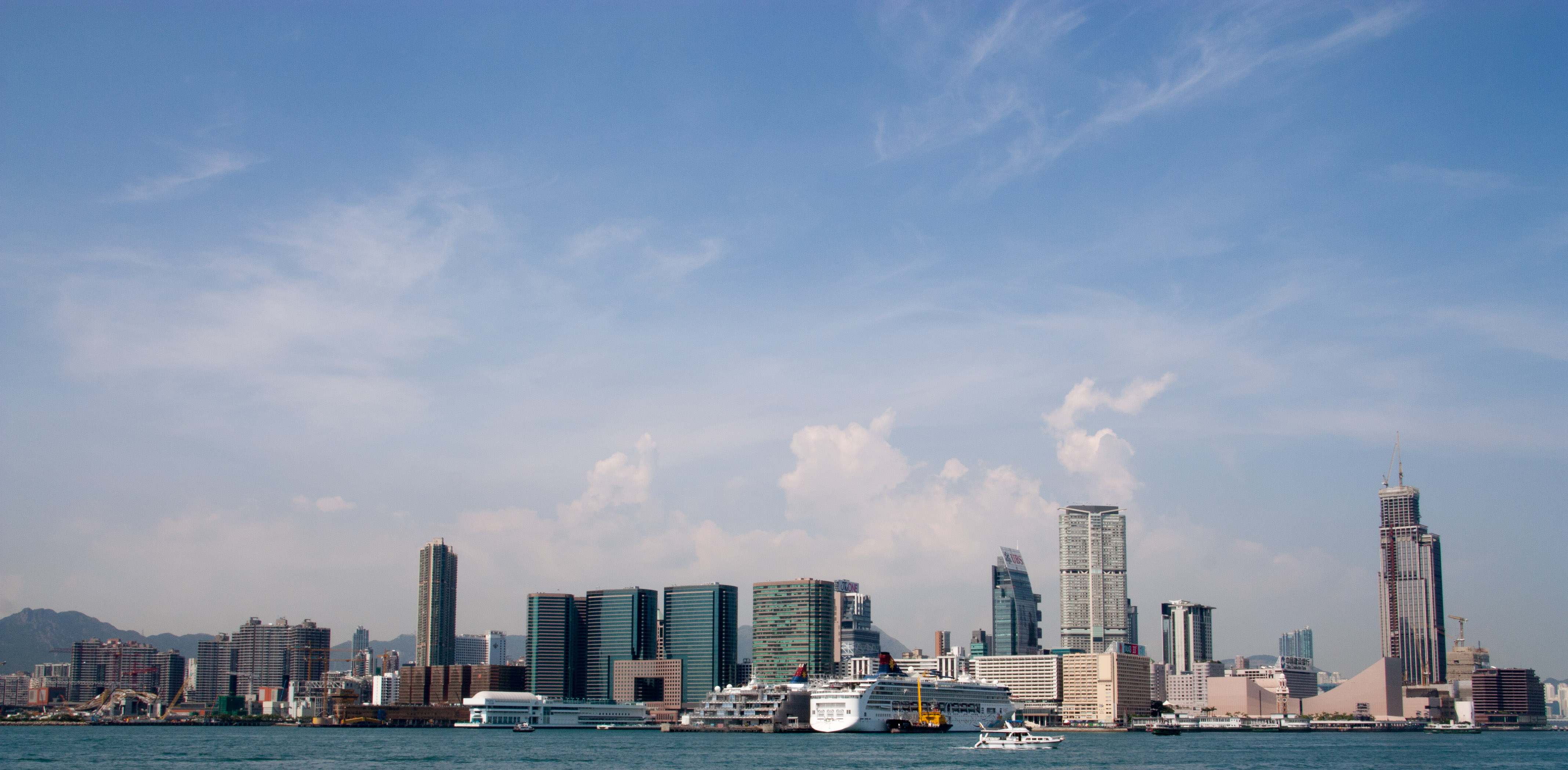
Kowloon from the Star ferry.
In keeping with my favoured way of getting around China, long haul trains, I decided I would have one last journey on the tracks before leaving the middle kingdom. Little did I know that my train, expected to be a mere day in length, would end up being a 40 hour LONG long haul trip.
I asked some of fellow passengers, who seemed strikingly unphased by the slowly increasing length delay announcements, what the cause was and I got a very standard reply; the kind of reply you grow used to from staying in China for a prolonged period of time, but secretly annoys you senseless – µ▓íÕè×µ│ò (nothing we can do!). Of course, always accompanied with a little smile just to let you know that nobody really cares that they are going to be on a train for practically a day longer than they paid for.
So…due to a minor delay, I arrived in Hong Kong on 3rd July, not quite fresh but certainly ready for a month and a bit working in the fragrant port.
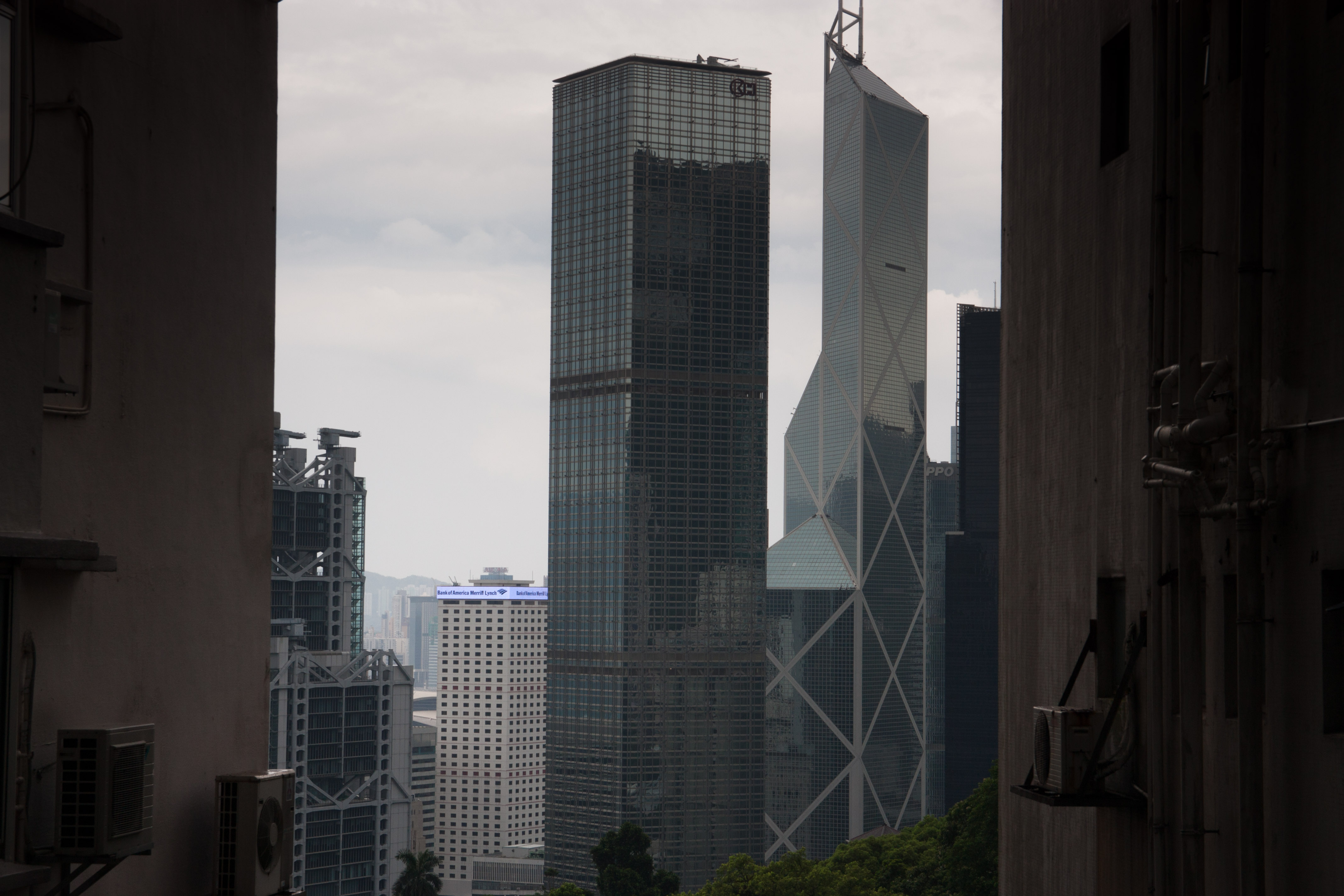
What’s striking about HK compared to mainland China?
Plenty of locals will hold that Hong Kong isn’t really China, and we’ll get to that later, but one thing is for sure. Hong Kong is strikingly different.
The first thing I notice in Hong Kong really is wonderful after Beijing – I can breathe there. Beijing is famous for it’s smog, sometimes reaching levels that break the national pollution scale in the winter, so to get off a train to find real, delicious air is quite the treat.
One of the things I really appreciate about this mad city is its people. Hong Kong people are (on average) much more lively than their mainland cousins. It helps of course that the language in Hong Kong is Cantonese rather than Mandarin, which just has an air of sass about it. There probably isn’t a language in the world that compares to it for it’s richness and variety of swear words and vulgarity either. Awesome. I won’t give any examples here, as it puts even the worse of Italian swear words to shame.
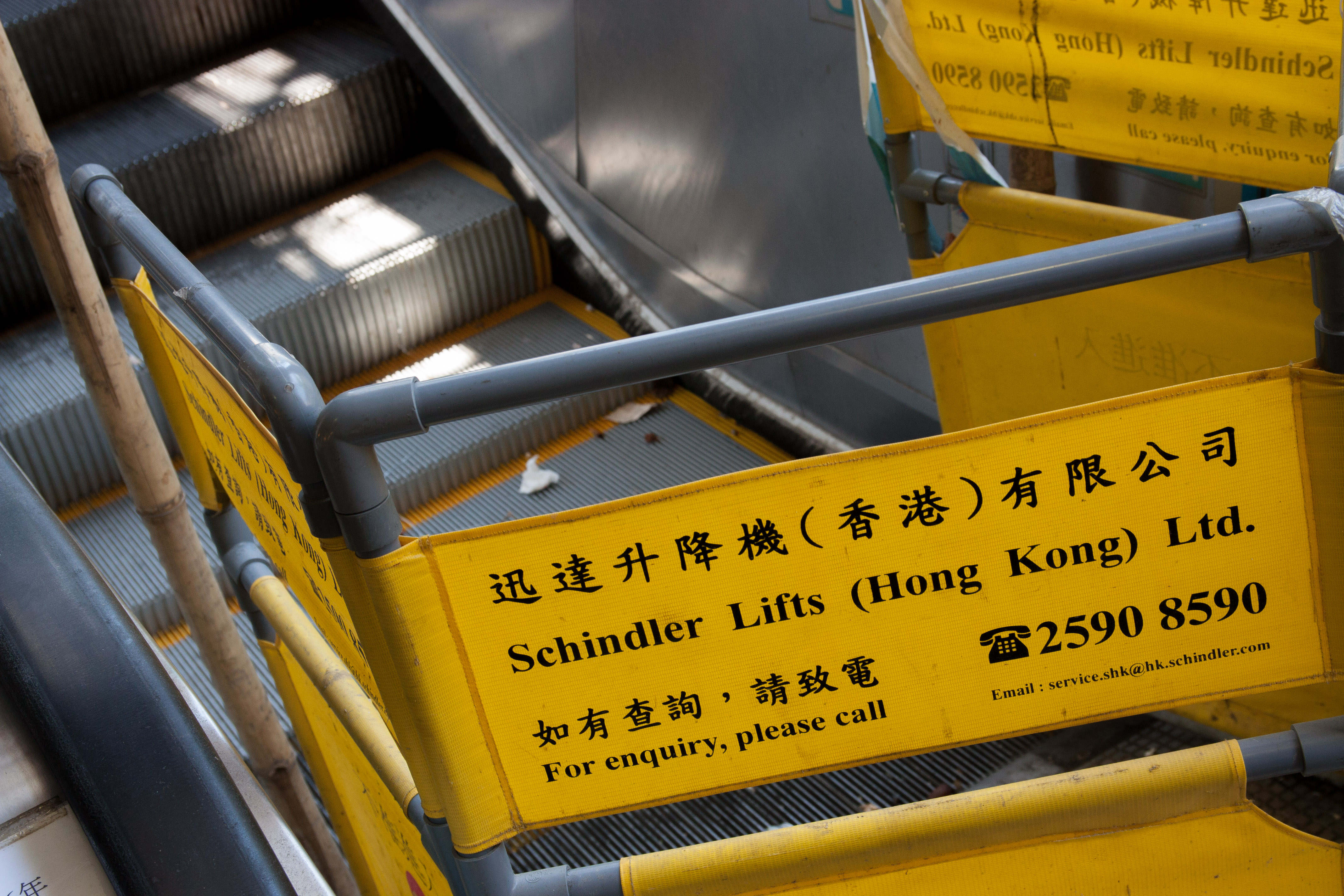
Puns, although essential to China’s humour in general has a stronger presence in Hong Kong.
HK is an extremely cosmopolitan place and although the larger cities in mainland China are getting there, they have nothing on Hong Kong for it’s variety of cultural offering from around the world. I found better coffee shops in Beijing though, if I’m being brutally honest.
Is Hong Kong part of China?
This is an extremely sensitive question, and I know for sure that even among friends who may read this, opinions could vary wildly.
No doubt you will have heard of the Yellow umbrella movement that brought Hong Kong to a standstill a few years ago, as pro-democracy supporters took to the street in protest at alleged election vetting. This still to an extent continues today -I’ve seen the remnants of the movement in the streets both times I’ve visited HK this year.
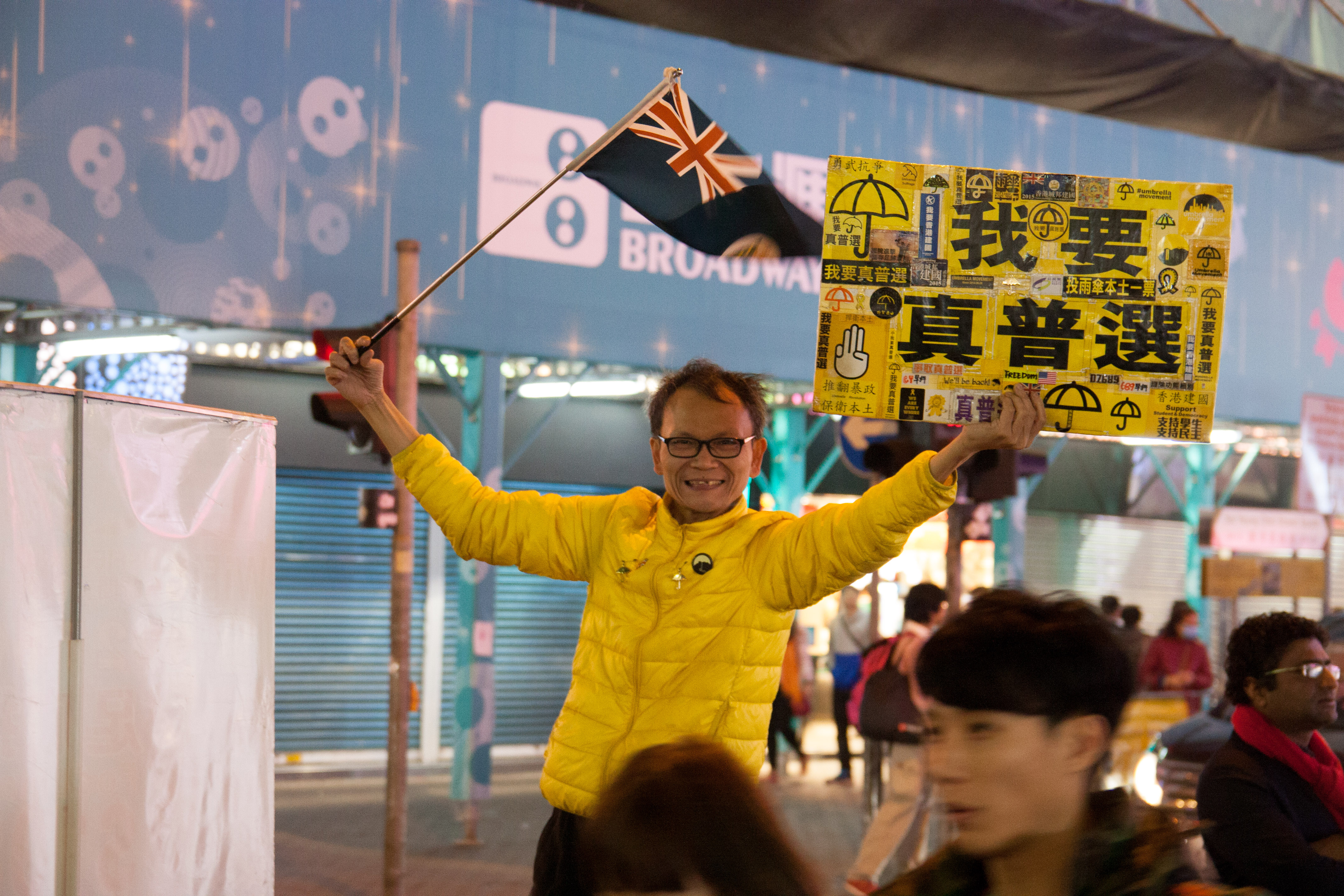
“I want a real election” The yellow umbrella movement lives on
The region was Annexed by Britain in 1841, only to be returned to Hong Kong in 1997. 150 years was of course a long enough time to become a very distinct culture from mainland China, and to develop itself into its own entity. At the same time, it retains a strong Chinese feel, but a feeling I would compare more to Taiwan than the mainland (Taiwan is sometimes considered to be more ‘traditional’ than mainland China). This is a city with a visible British colonial past, but chances are that the family restaurant you go to for dinner will have a traditional Buddhist shrine at the back of the room. You’re unlikely to see either influence in Beijing or most large mainland cities.
Hong Kong is officially a special economic zone of China, with strong level of autonomy for its inner workings of the economy and politics. In strictly official terms, then, Hong Kong is part of China, but sometimes a question comes down to more than officialdom -I’m officially British, Dutch and a Kiwi (as long as I still have NZ citizenship…not really sure on that one) but I’ve called myself Scottish for most of my life!
The same goes for Hong Kong. I’ve seen adverts alongside election posters essentially asking residents to remember they are firstly Chinese, then Hong Kong folk. On the other side, some of the election posters, were putting independence on the agenda.
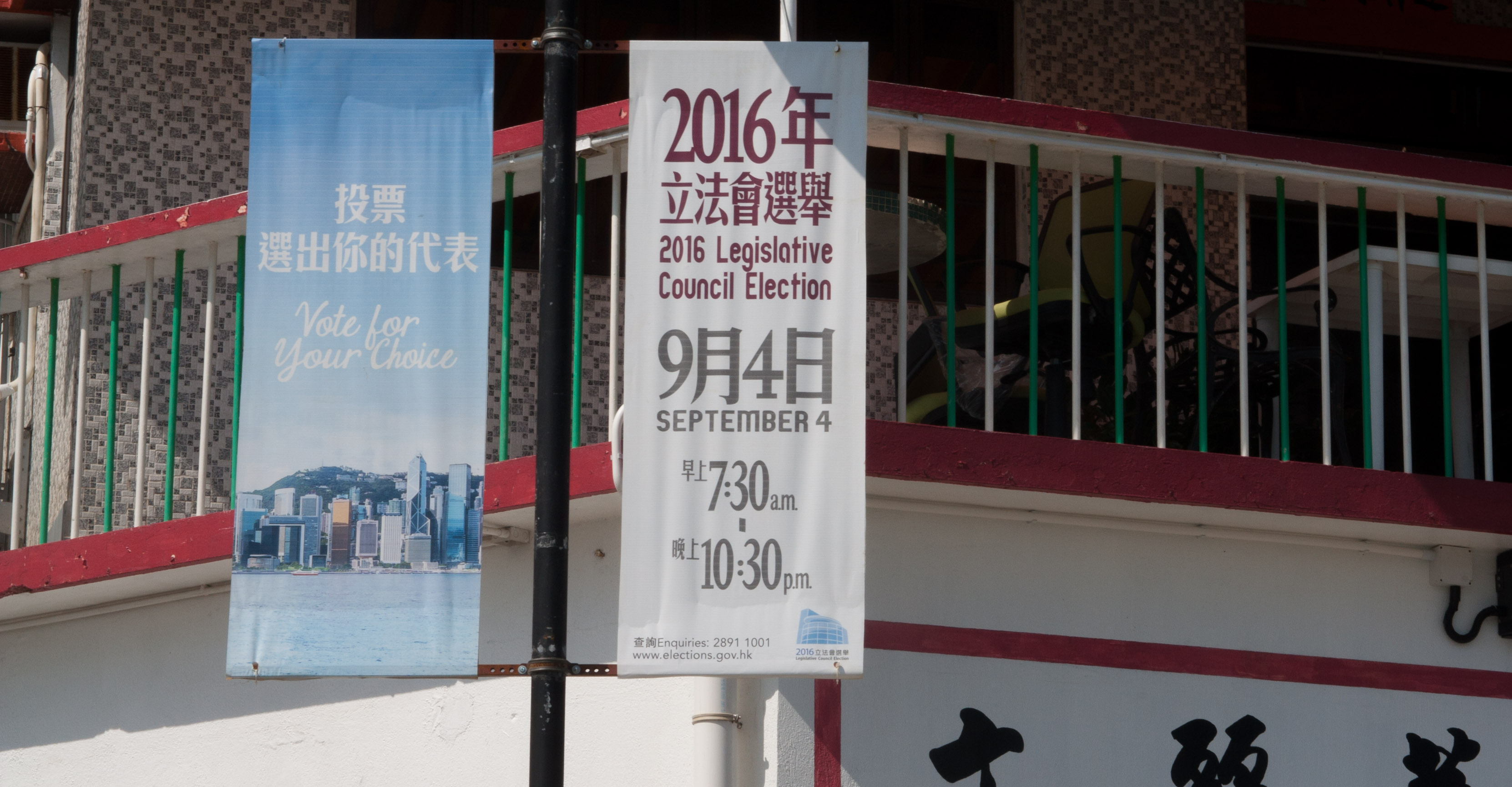
The differing political systems of Hong Kong and the Mainland makes this question even more confusing. Hong Kong is aggressively democratic. The run up to an election going on during the summer was only a local election, but that didn’t stop the whole city being covered in political flags and the sound of megaphones rallying for more votes filled central.
After the election, the majority of seats were taken up by pro-Beijing politicians. I haven’t looked into the results thoroughly, so I can’t comment on whether this mean the suspected pro-Beijing vetting happened, or whether the result simply expresses a majority as pro-Beijing, but in my ignorance I will have to take the benefit of the doubt and say, the election suggests good strong support for Beijing.
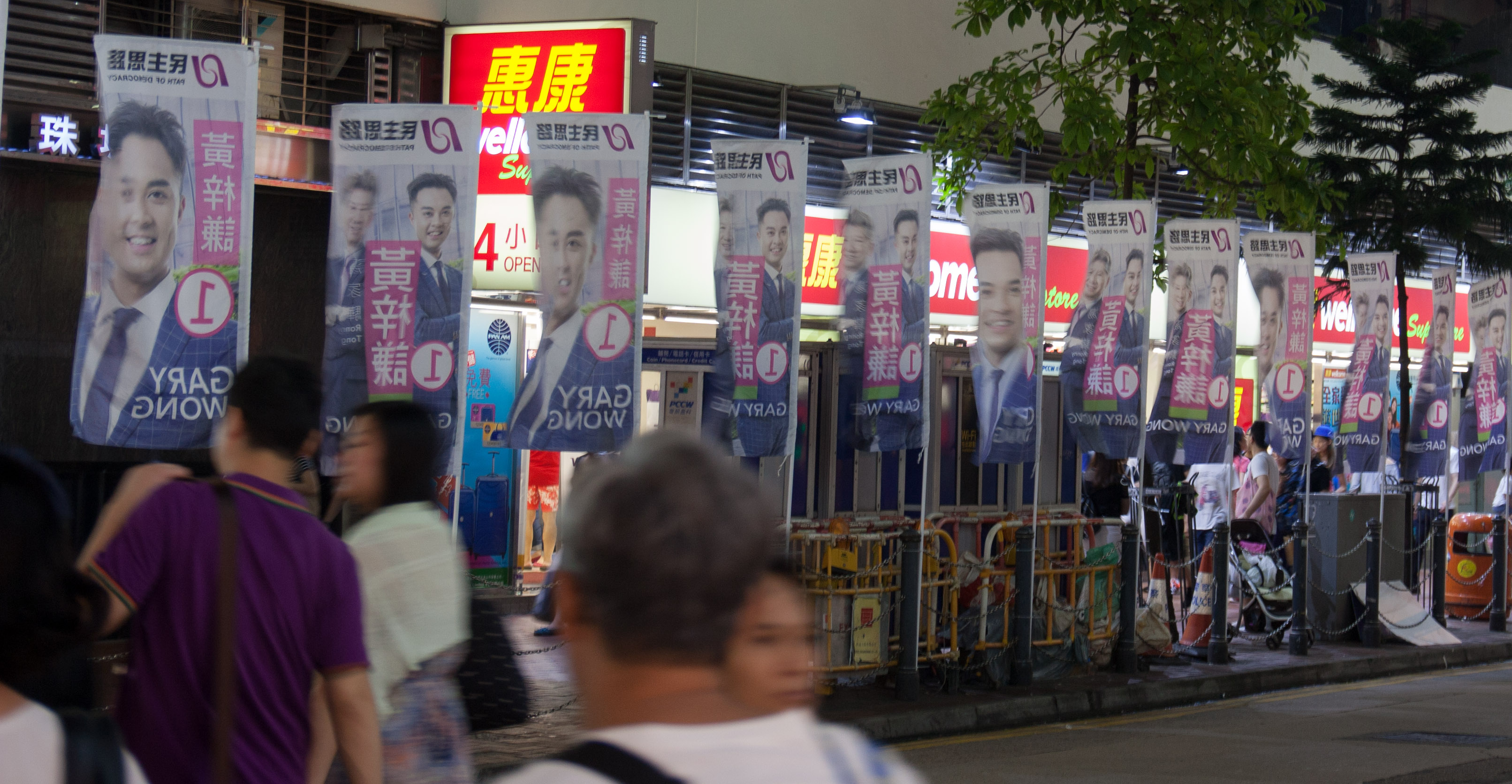
streets on Hong Kong island lined with election flags
I’ll finish on the political side of things by saying that most of the people I’ve met in Hong Kong, whether representative of the population as a whole or not (I assume not), have been pro-independence, some of whom will express concerns about some of the very serious accusations against mainland China.
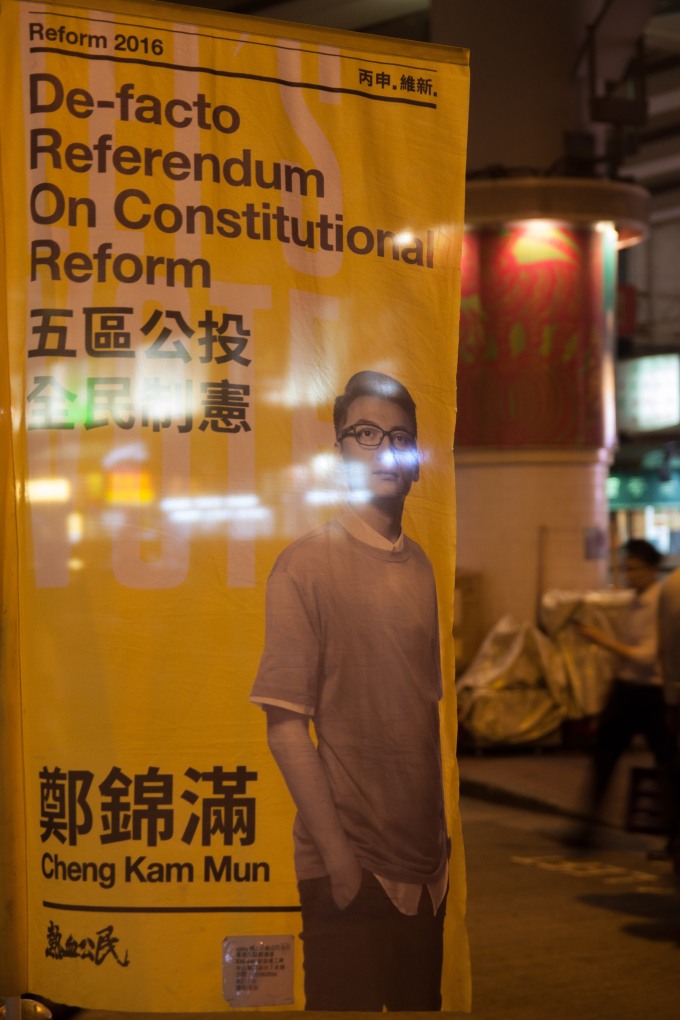
These accusations are openly voiced by one of the most divisive organisations in Hong Kong: Falun Gong. Falun Gong is a spiritual practice, combining elements of Buddhism and Tai Qi. This may sound completely harmless, but some consider it an evil cult. It is outright banned in the mainland and you will get in serious trouble for associating with the group. There are special Falun Gong messages written on 100 yuan notes in circulation around China, and I’ve seen people look openly worried at seeing them.
I mention Falun Gong because this is an organisation that is definitely not in favour of ties to the mainland.
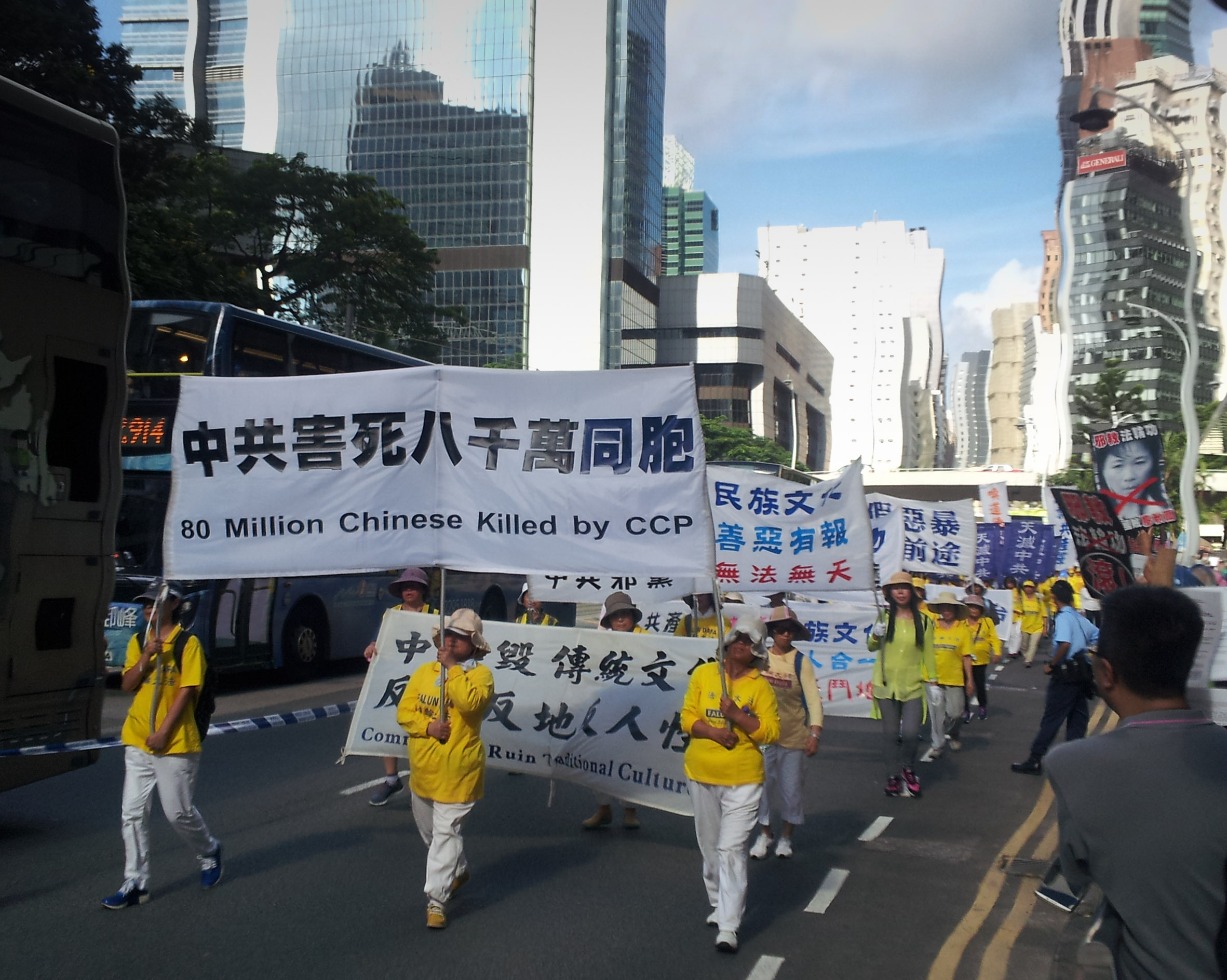
I came across a Falun Gong march through central and as you can see from above, they have a few things to say about the ruling party over in mainland China. Their posters accused the CCP of murder, torture, unjustified imprisonment and even live organ harvesting. Add in the kidnapping of journalists and bookshop owners, and you have the same accusations of some of the angrier pro-independence supporters.
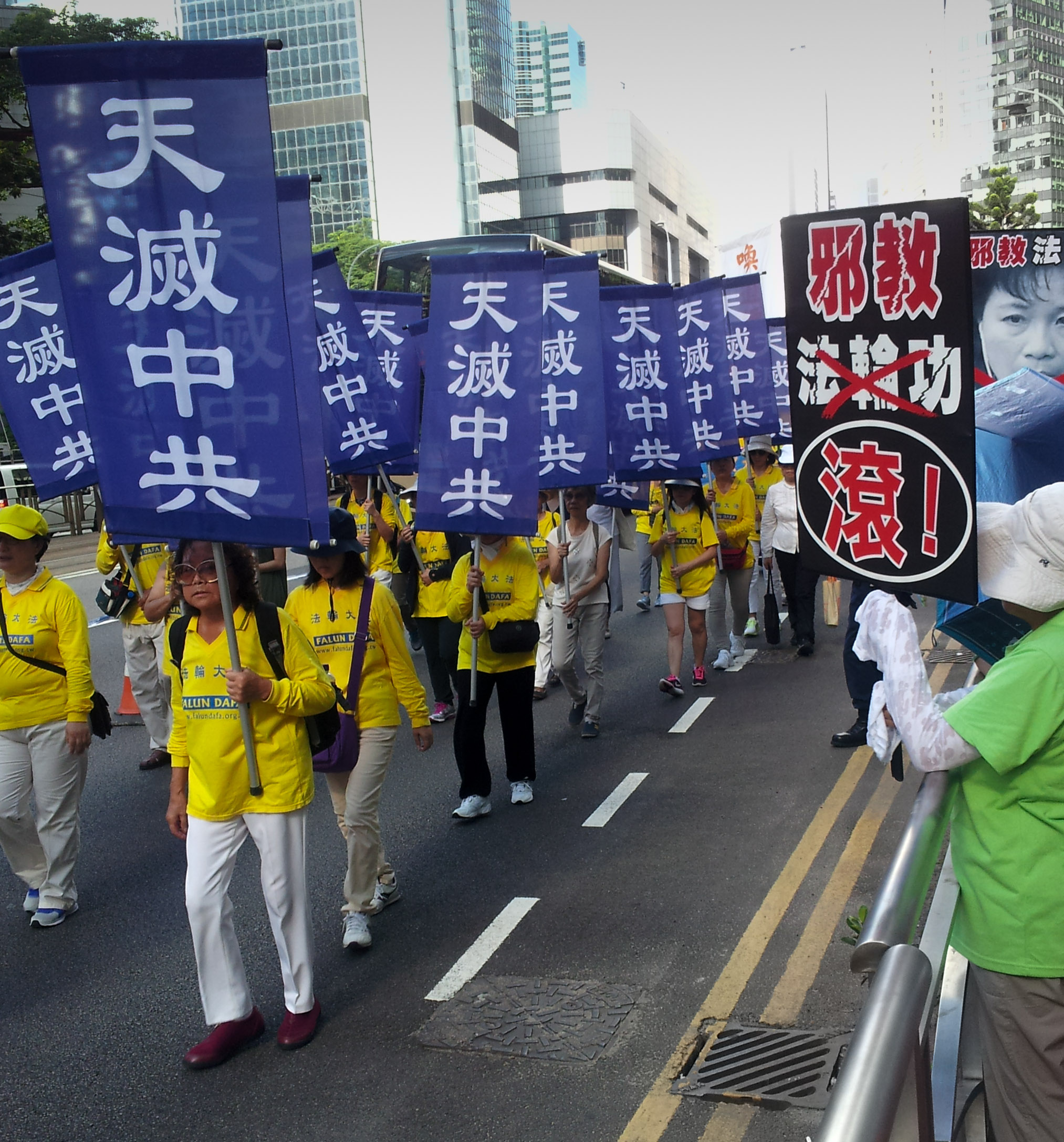
counter protesters call Falun Gong and “evil sect”
Again, I don’t know enough about Falung Gong to justifiably say whether or not they are a good organisation, but they certainly express some of the anti-mainland sentiment which exists in the city.
Then there is the question of media opinions. On the TV, (I struggle a bit as it’s Cantonese TV rather than Mandarin TV, so i can easily get the wrong impression) media outlets seem fairly supportive, or at the very least neutral towards mainland China. The printed media however is a bit more divided. Take this line of magazines for example.
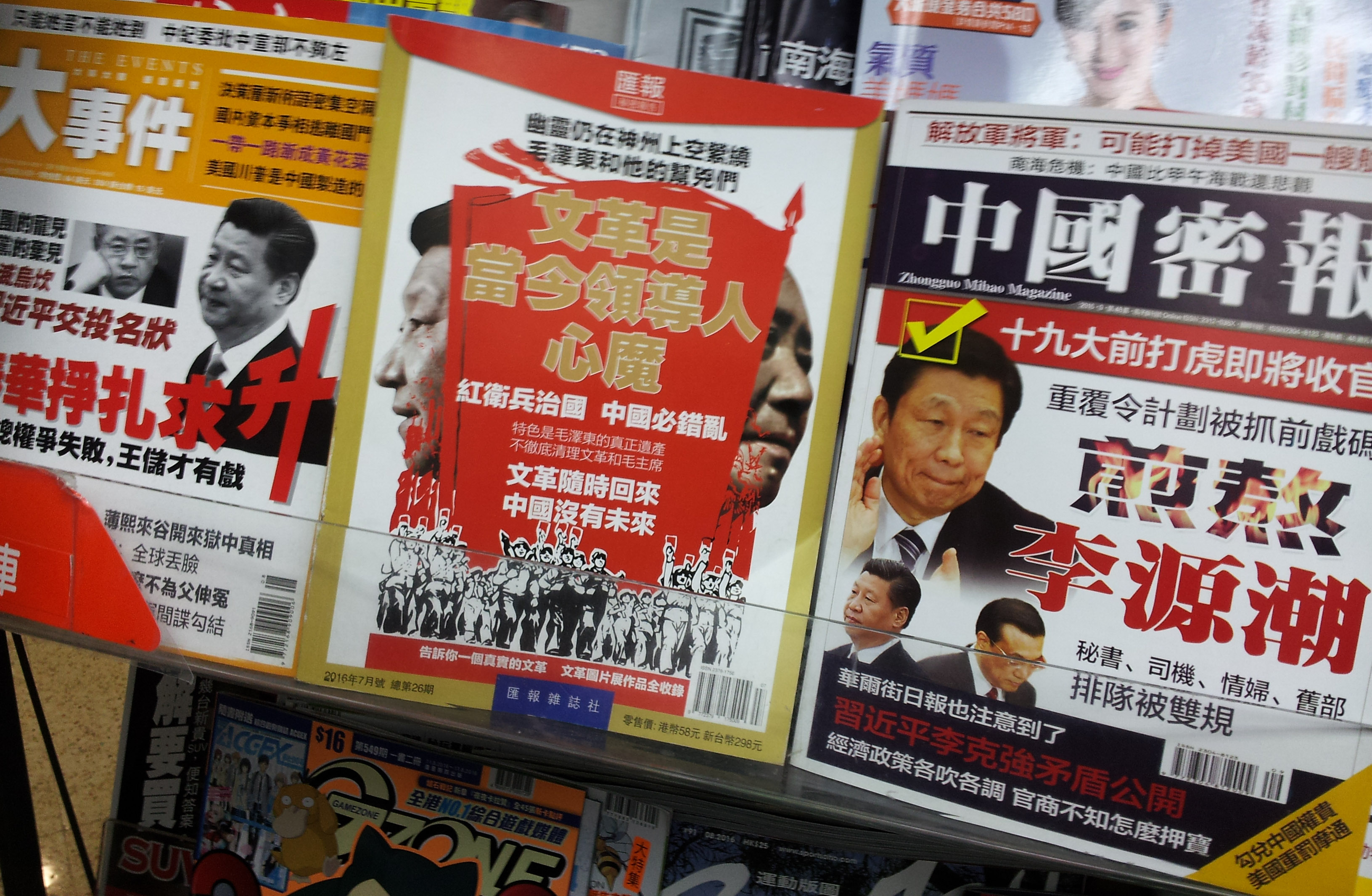
Highly critical of Xi Jinping news magazines
The magazines in the previous picture are so damning of the current CCP government, that they go as far as comparing it to the cultural revolution, a time in China’s history so controversial that mainland China tries to dodge any mention of it. It’s worth remembering taking this kind of press with a pinch of salt however. Although I’m not familiar with the magazines, the names such as ‘China Secret Times(?..struggling on how to translate µèÑ neatly…)’ suggests there might be a bit of sensationalism going on.
No more than the Chinese state press, no doubt, however.
Ok, I take back my earlier comment of ‘final note on politics’.
Religion in HK
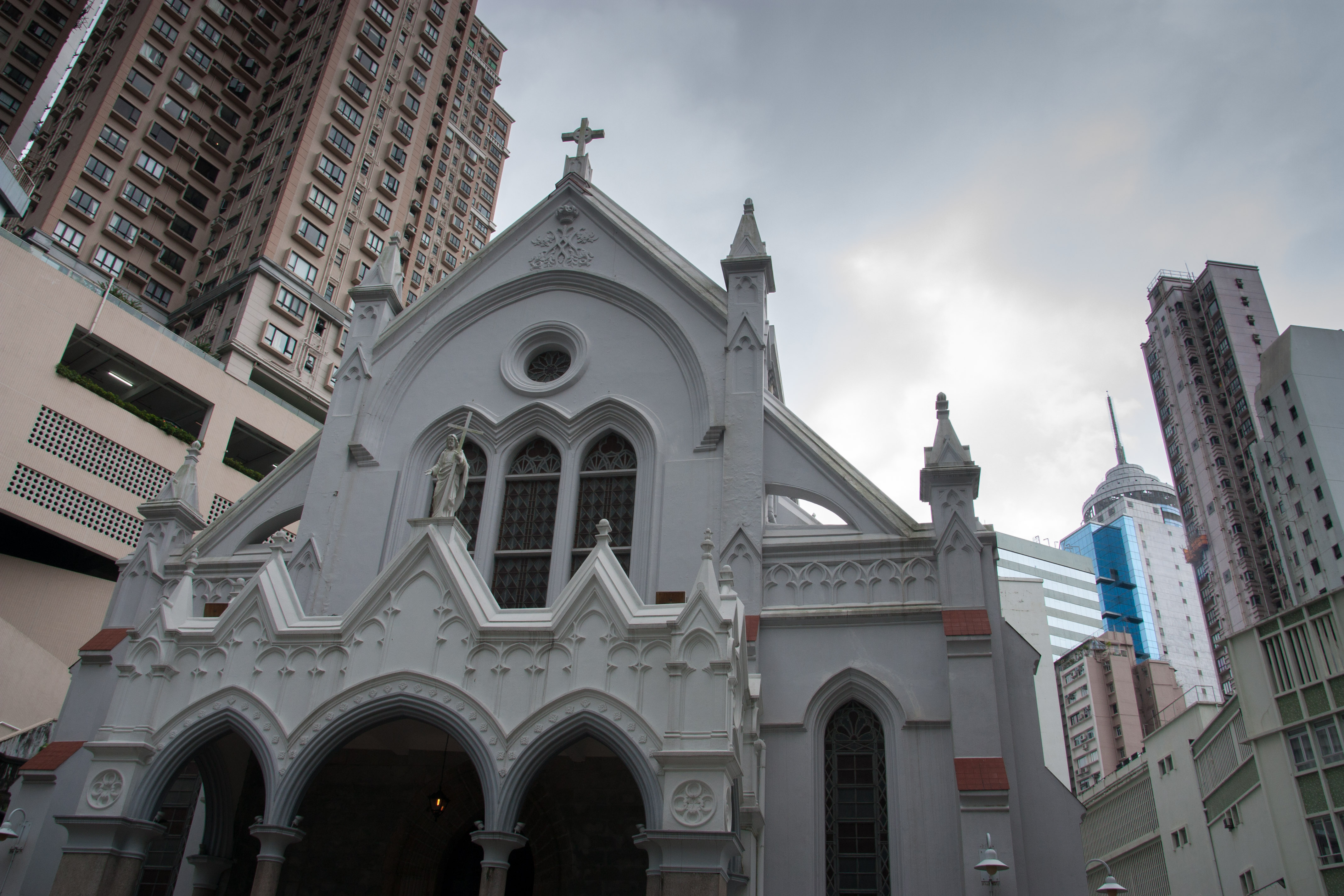
We’ve talked a little about Falun Gong and China’s traditional Buddhist influence, but religion is a big topic in Hong Kong. You will never be far from a Buddhist temple in the city and one of the finest religious buildings in the city is a beautiful mosque, but it seems to me the religion with the largest presence of Christianity.
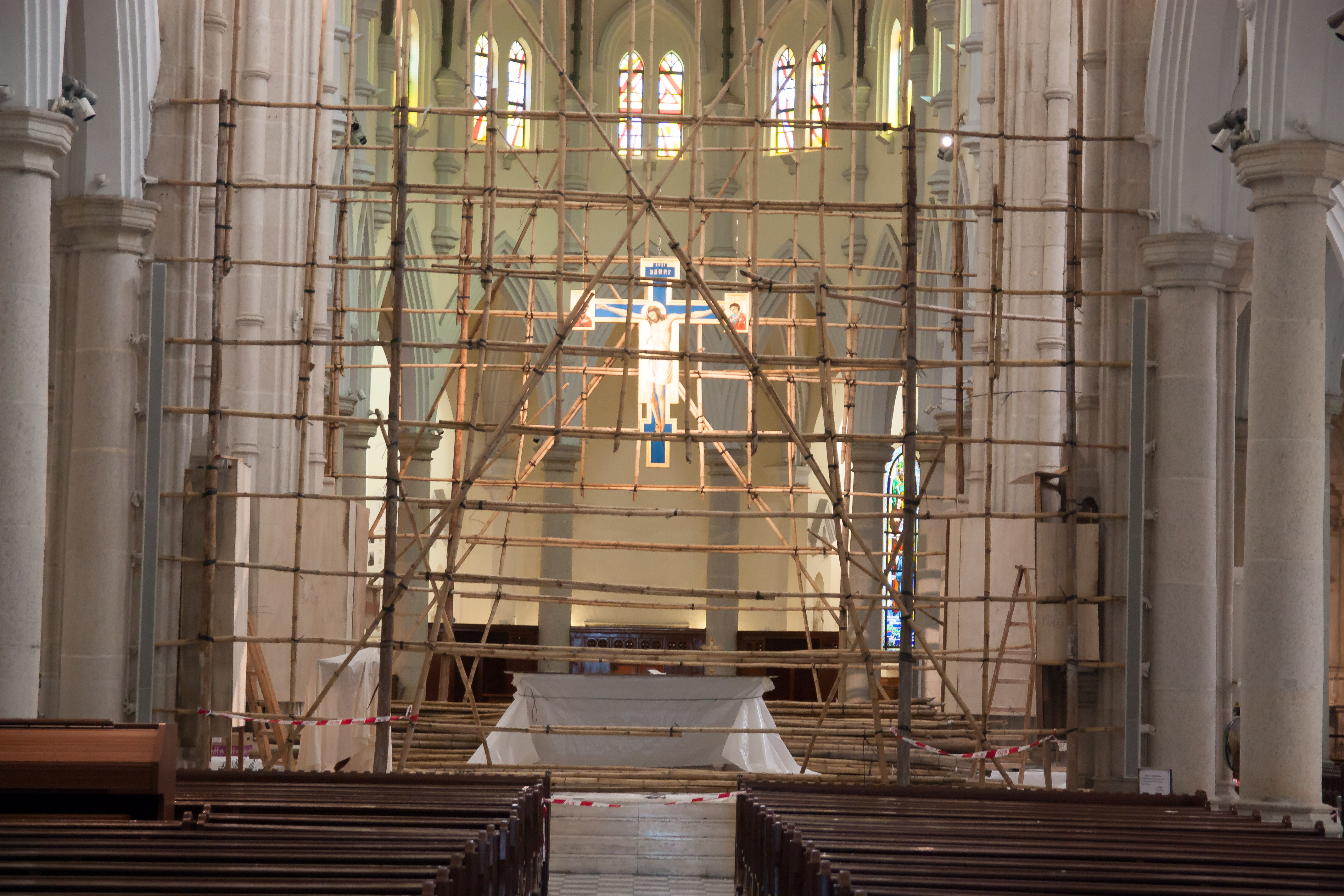
Bamboo scaffolding in one of Hong Kong’s churches. Local building techniques meet Christianity.
Where the strength of Christianity’s influence on the city shows most clearly is in the Christian organisations dotted about it’s borders. The YMCA for example has a huge presence, including owning most of the schools I saw around the city, including the ones I worked in. I also spotted one Buddhist school, suggesting that religious schools seem to be preferred in general. Although there must be some, I don’t actually remember seeing many secular schools at all.
Even for those who may not be religious themselves, the traditions coming from religions have an influence on people’s lives. Traditional festivals, values and much more all make their way into every day life.
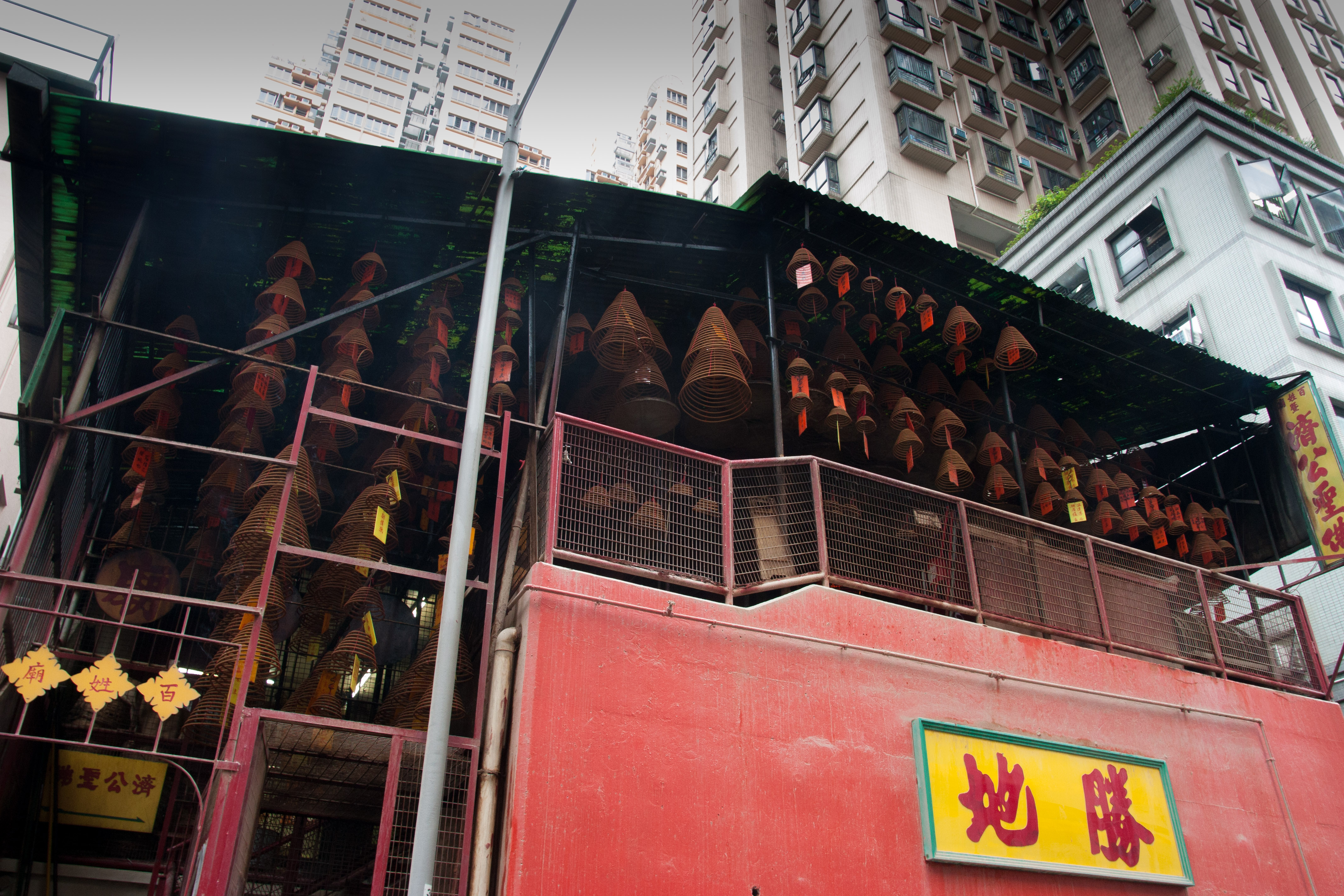
Typhoons
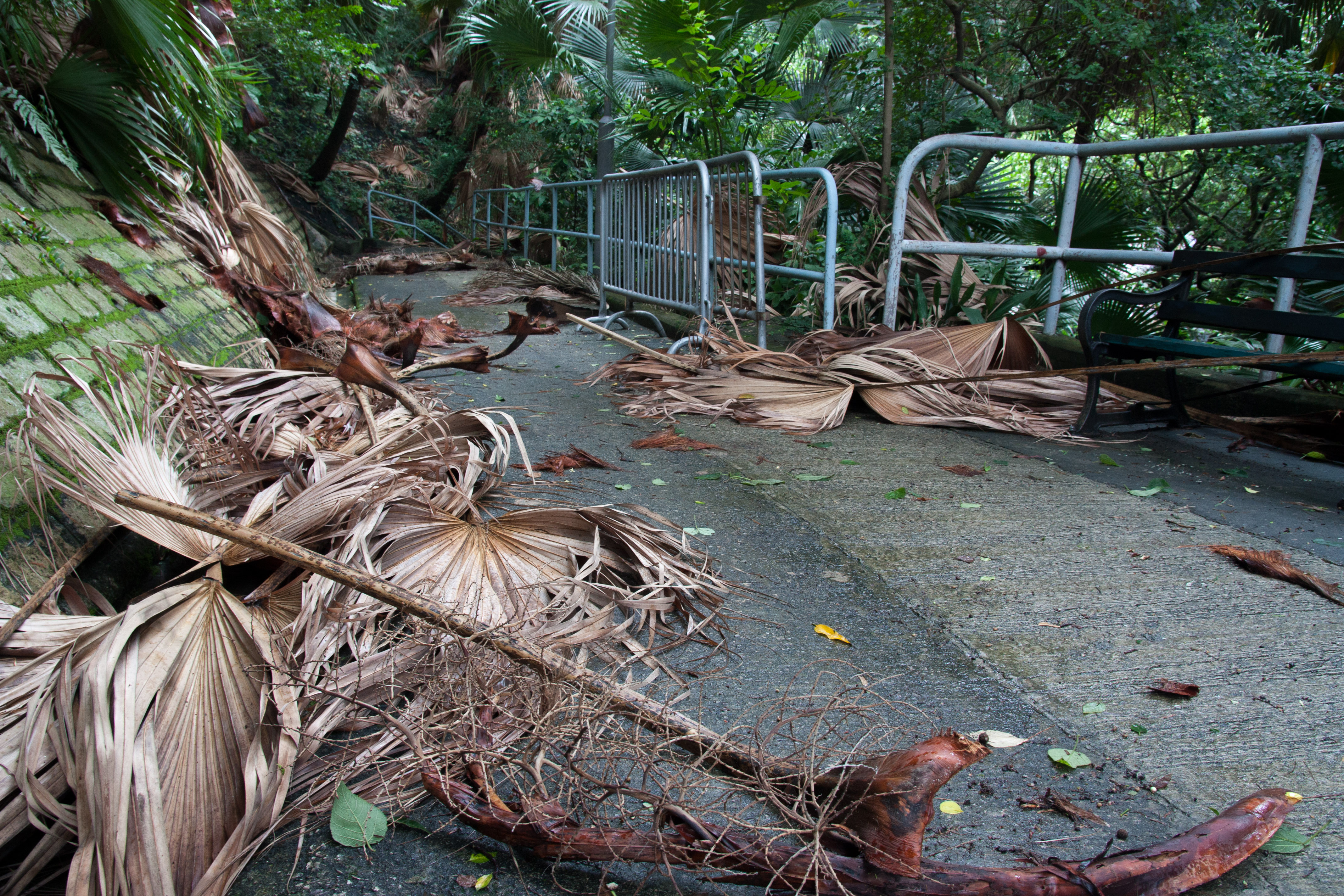
Damage to Hong Kong’s green space after the Typhoon
Something I didn’t experience on my short visit in the winter was Typhoons, but August just happens to be prime time for big, windy, rainy, tropical storms.
This year’s typhoon was meant to be the biggest on record for 37 years. I genuinely don’t know if it ended up that way, as it reached it’s peak in the middle of the night, but even as it was building up the evening before, there was an impressive amount of wind and rain. My apartment (a wooden bungalow near the sea) was told to evacuate to nearby concrete buildings just for safety and although there was no damage to the place, I’m glad the precaution existed.
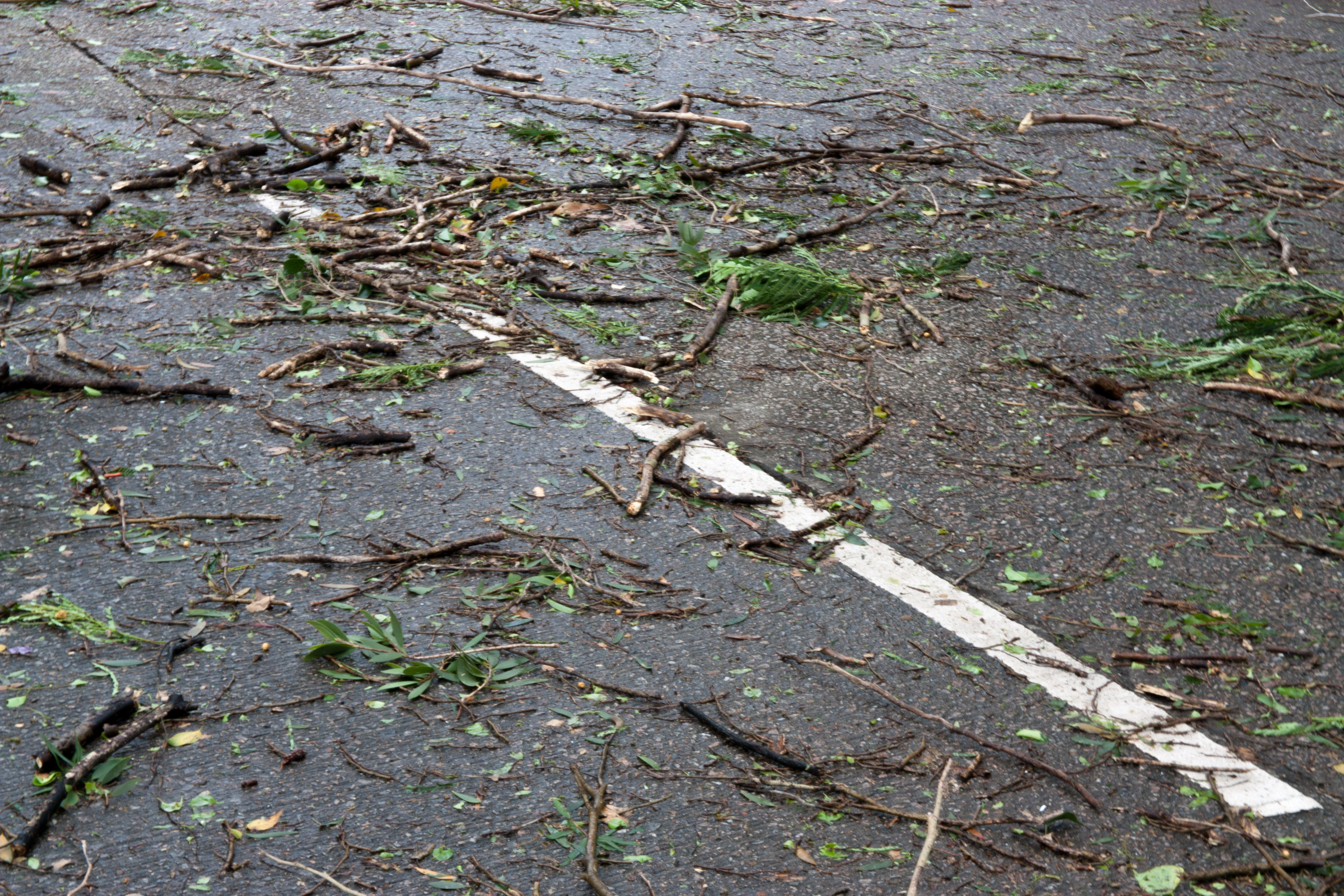
Branches ripped from the trees near my accomodation.
Luckily it seemed damage was limited, but the city’s green spaces were knocked around a bit. The paths near the Botanical gardens had a team busily trying to clear all the debris, some of which would have hurt if you were walking by when it fell.
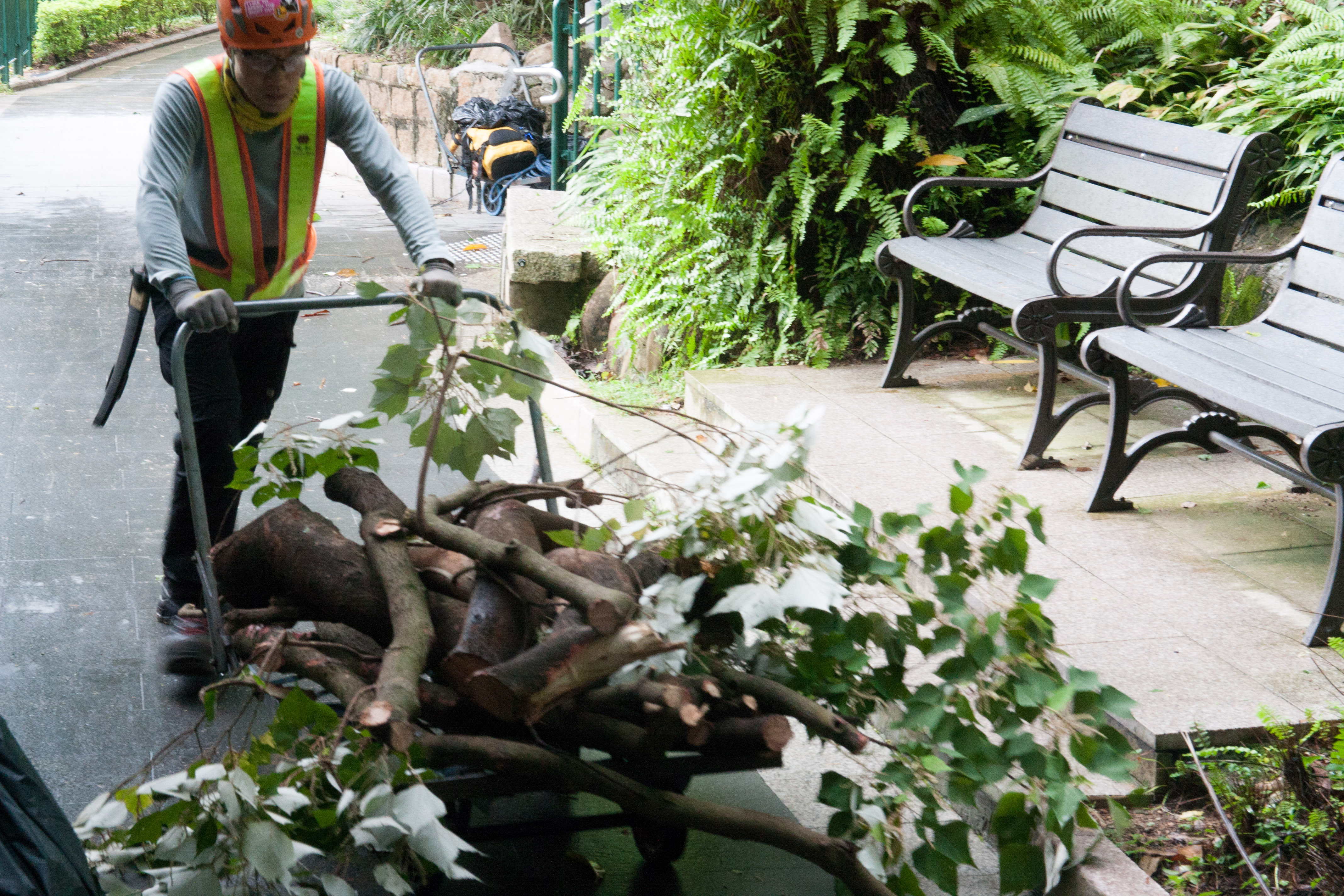
bits of tree being cleared near the botanical gardens after the typhoon
Away from the City
Leading on nicely from Hong Kong’s slightly mangled green spaces, the city actually has a surprising amount of natural beauty that you might not at first expect. It is, after all, built on a number of mountainous islands on the South China sea. It is, despite the concrete and glass of Kowloon and Central, a beautiful part of the world.
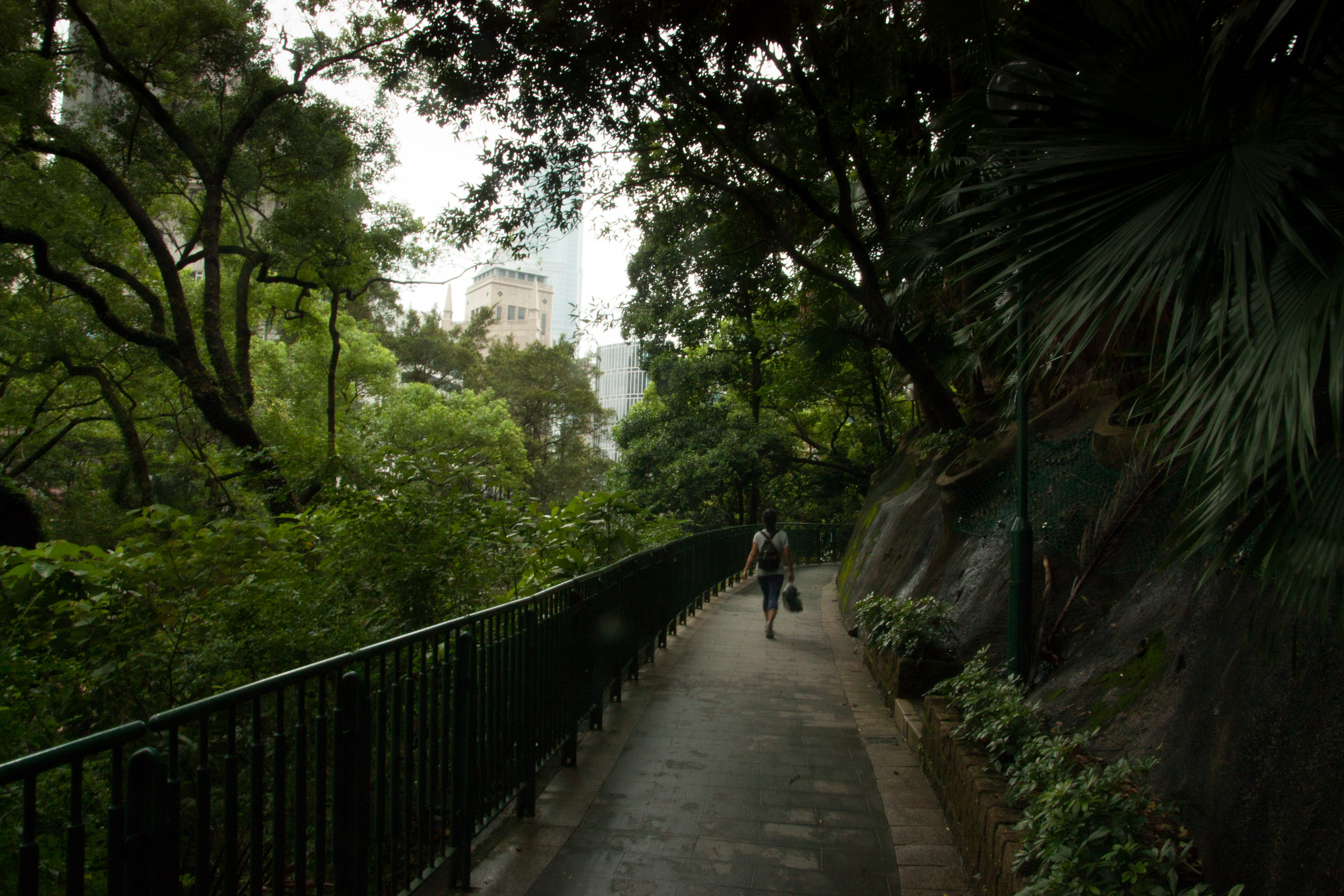
a footpath near the botanical gardens.
I took a trip out to Lamma Island, one of the outlying regions which you need to take a ferry to get out to. 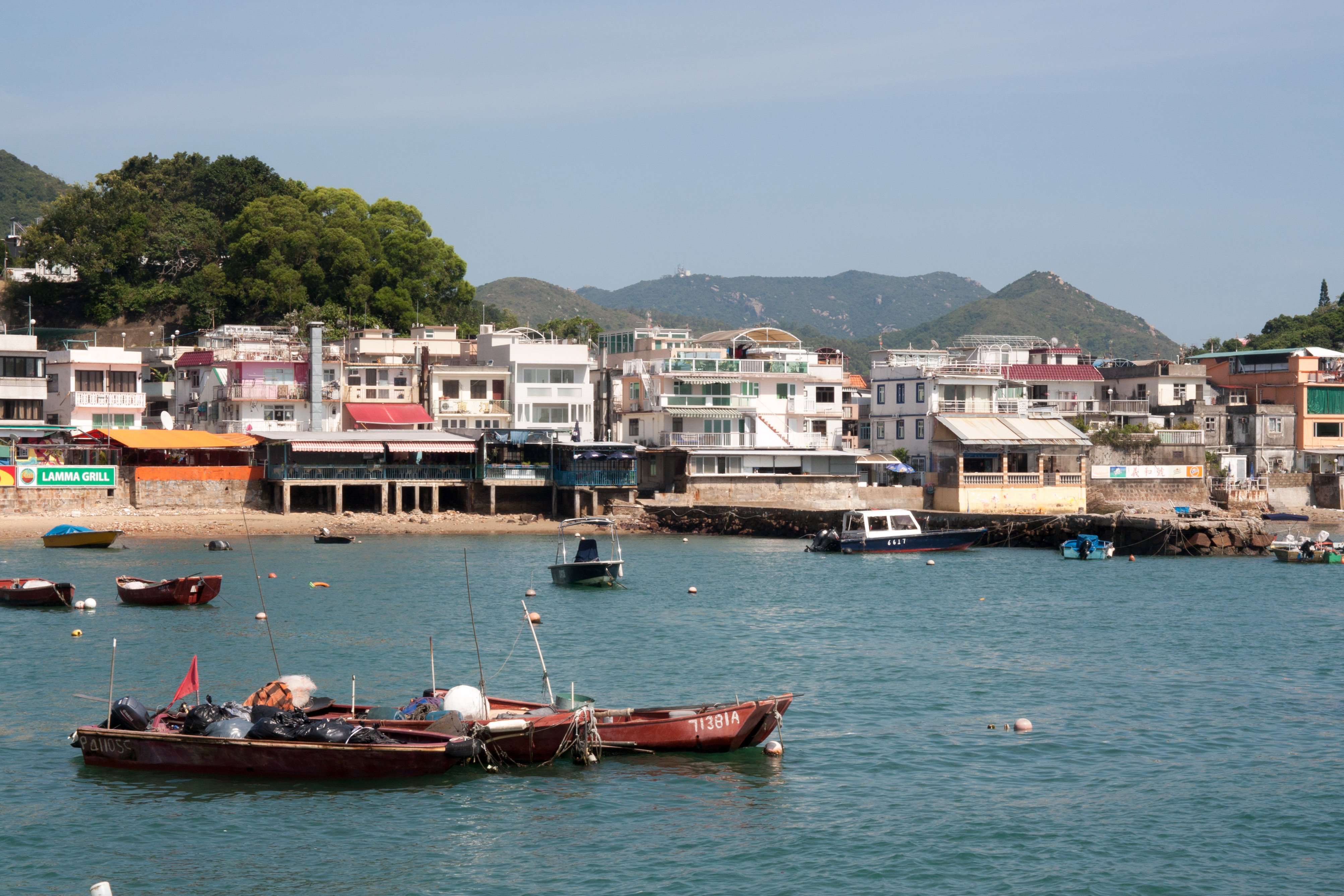
The villages on the island are small fishing communities, but I got the impression the main industry here now is tourism. In many ways you could consider spots like this the ‘rural’ Hong Kong. Other than two villages, Lamma Island is mainly countryside. The strangest thing for me, was that it seemed to also be a British ex-pat retirement place. The number of older British residents was unexpected.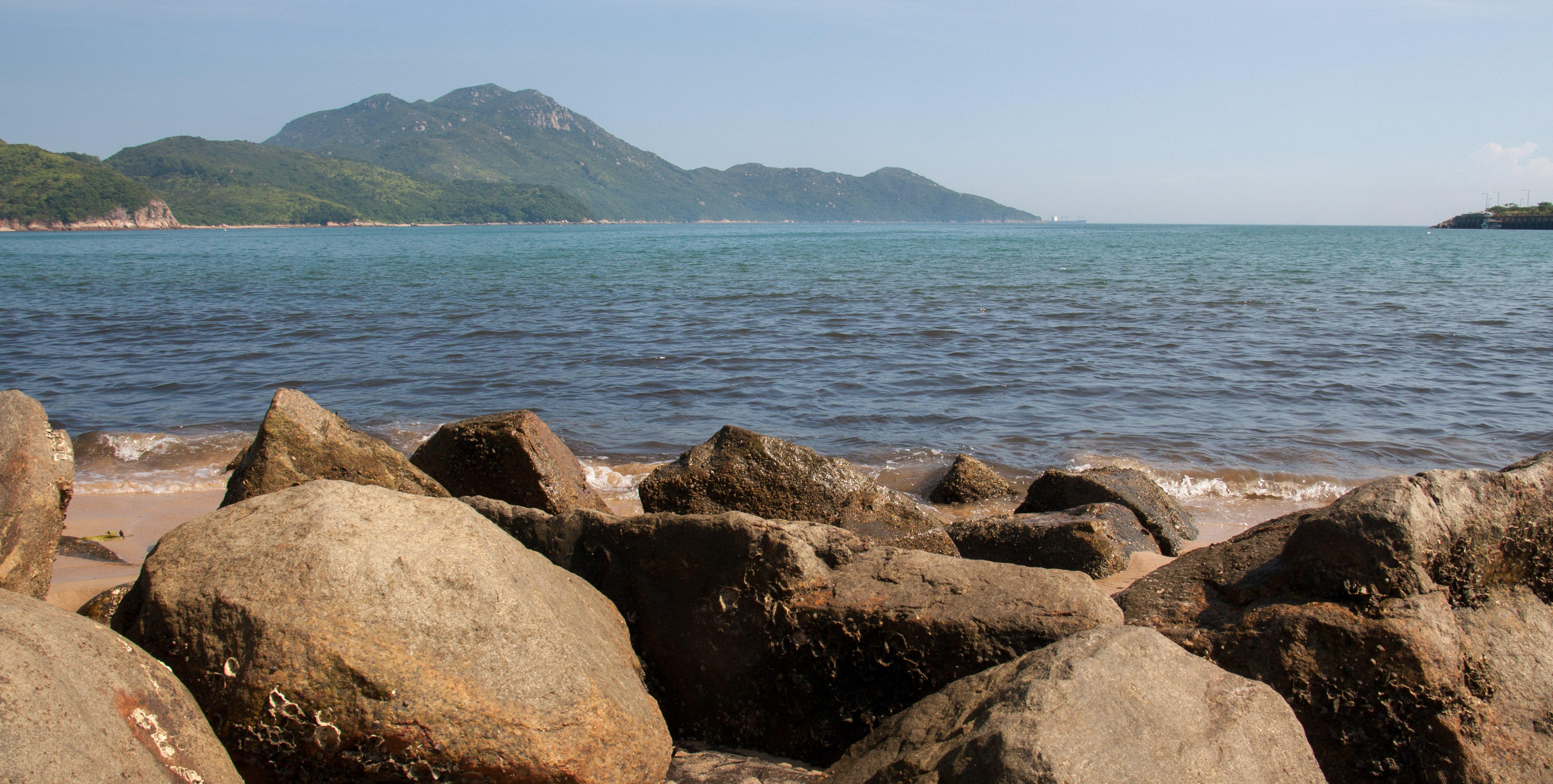
But at least the beaches were nice.
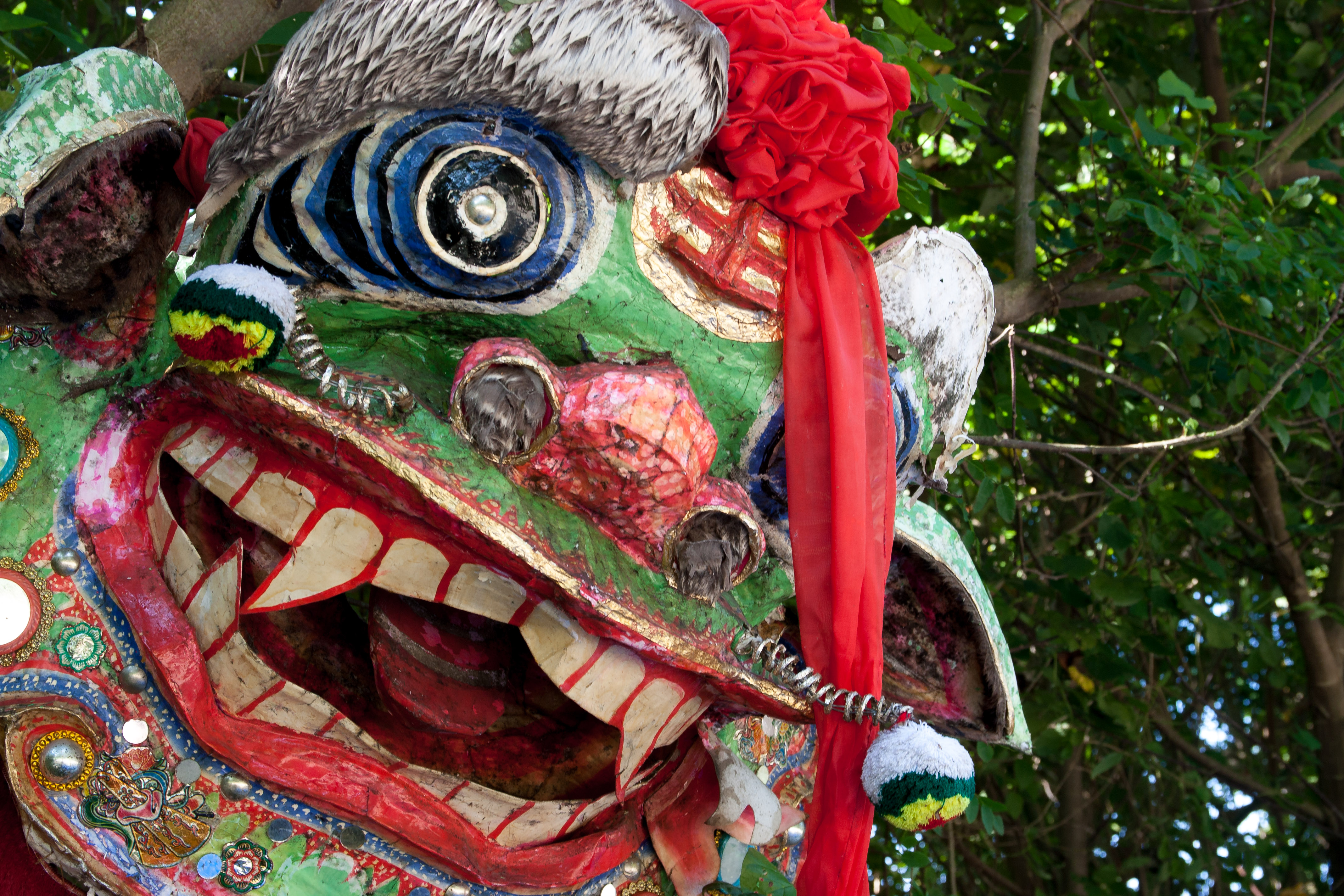
As were the dragon masks hanging, for some unknown reason, from trees in the forest.
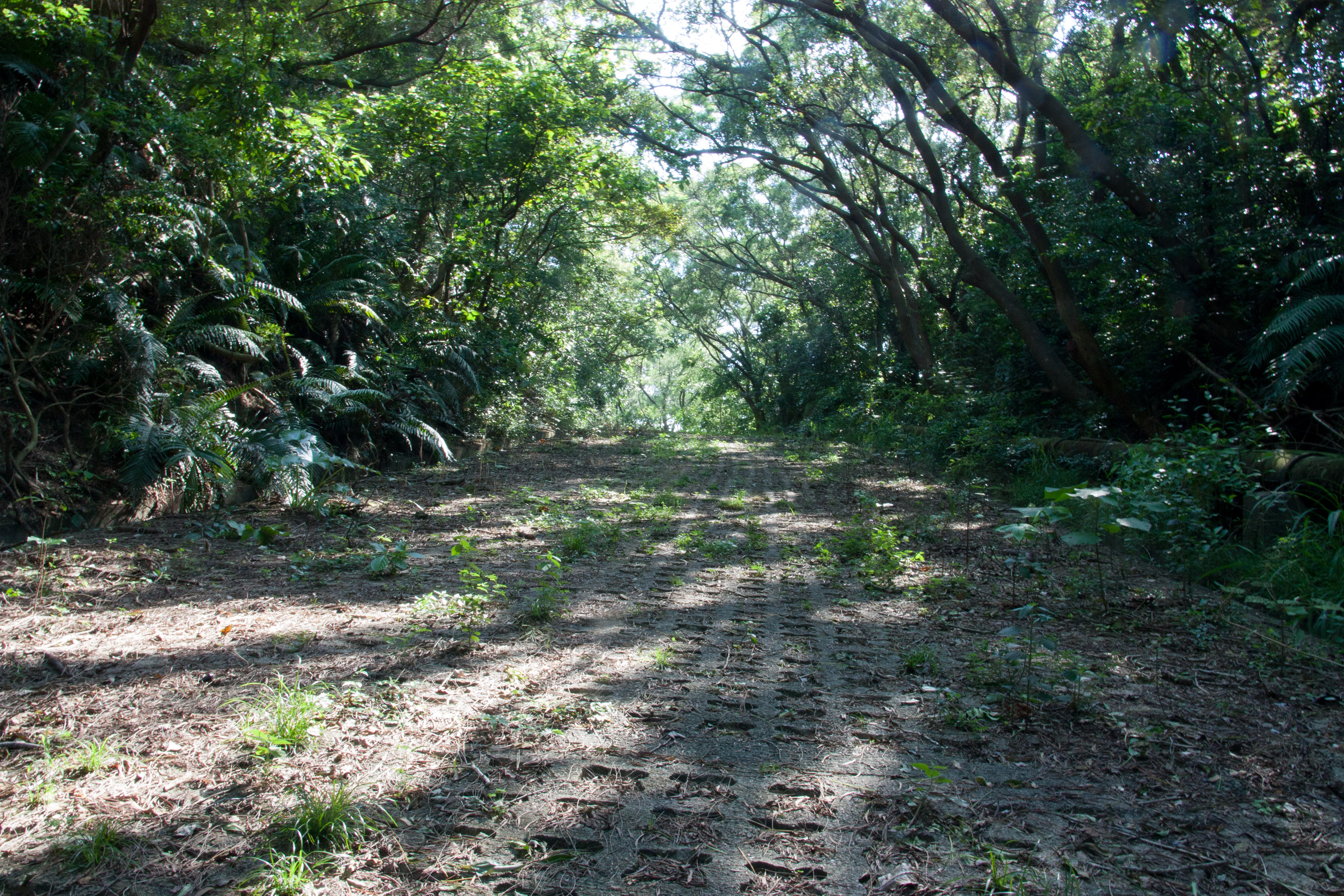
And the overgrown paths that looked unused, or at least unkempt, for many a year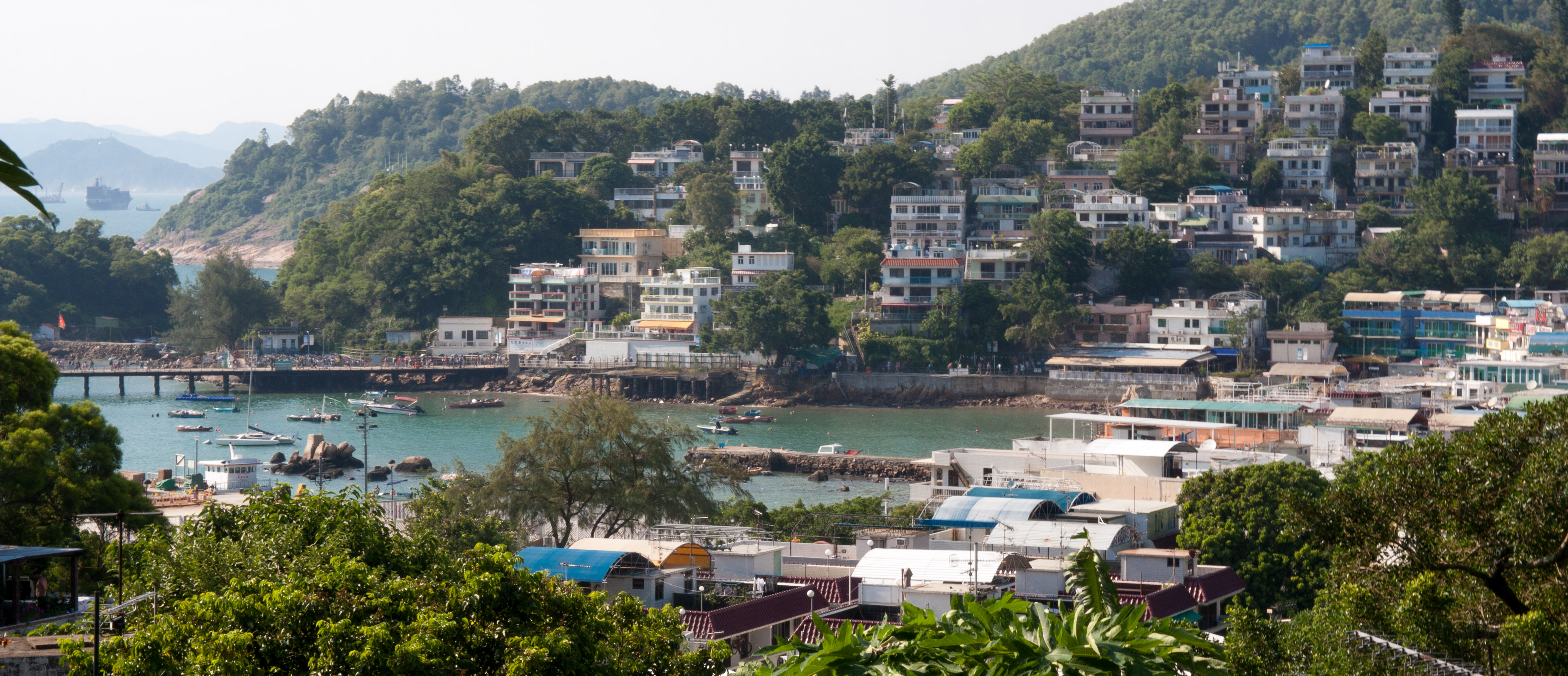
Overlooking one of the villages on Lamma Island.
The route to and from Lamma Island highlighted another very important element of Hong Kong: It’s one of the largest ports in the world.
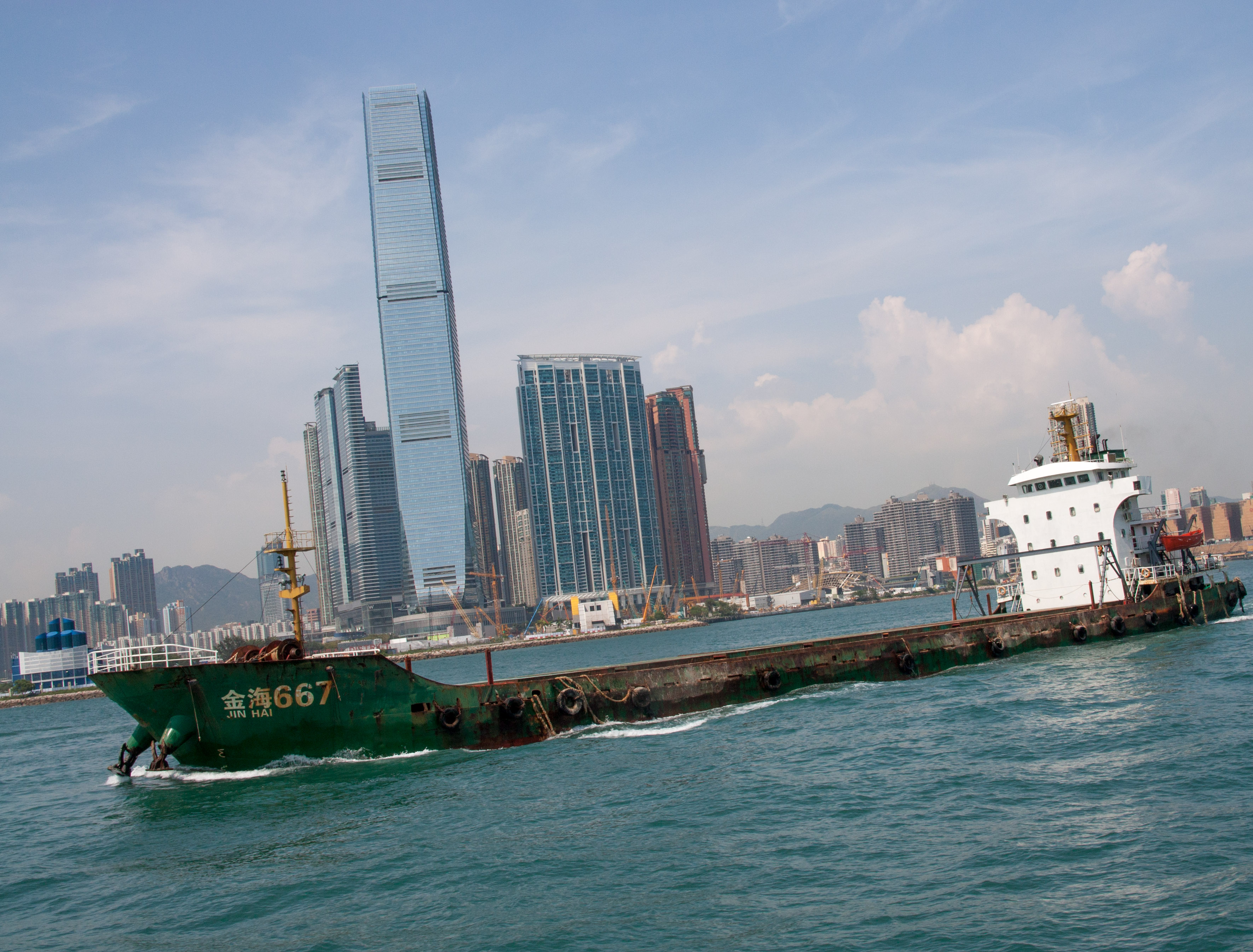
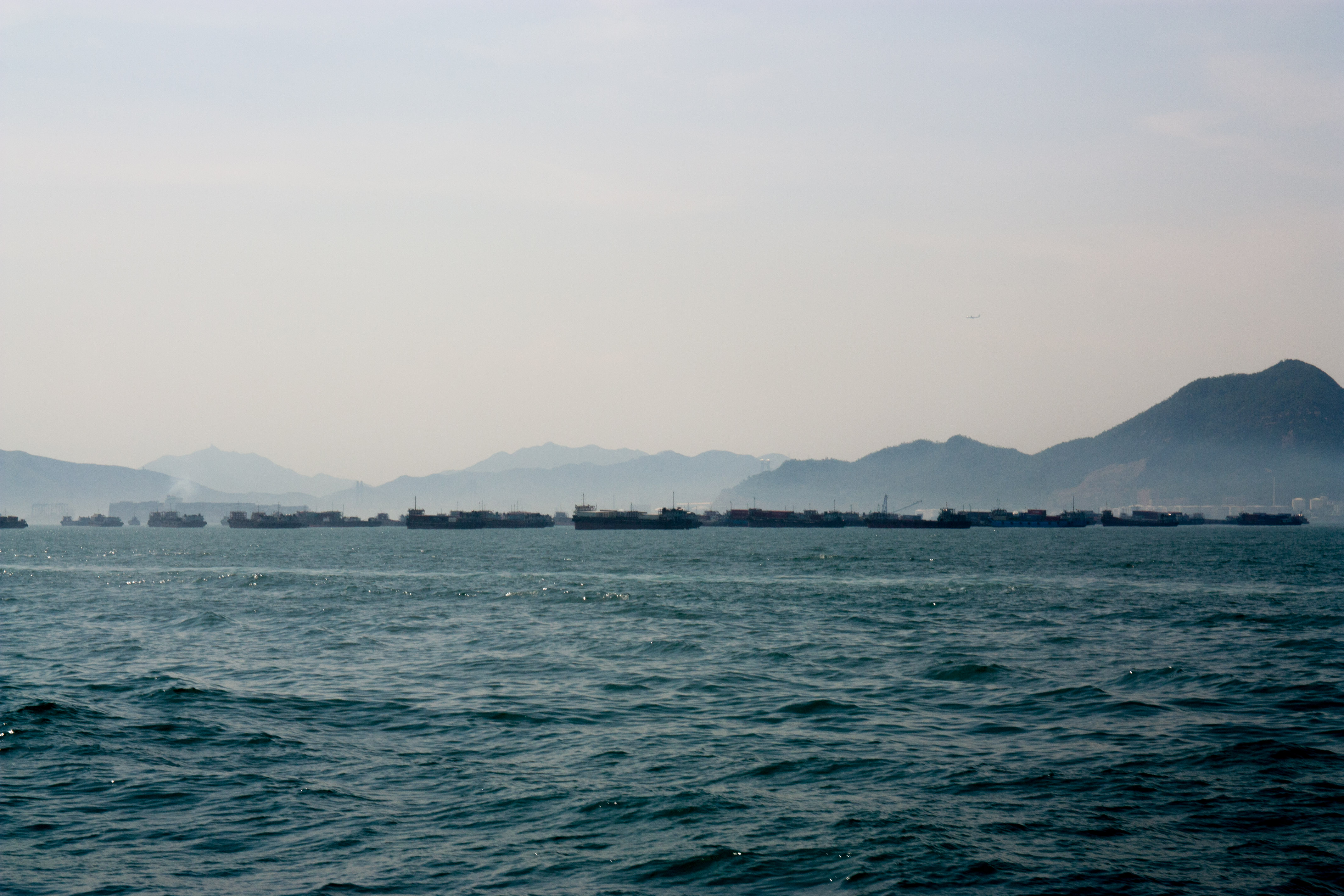
some of the huge number of boats out in Hong Kong’s harbour.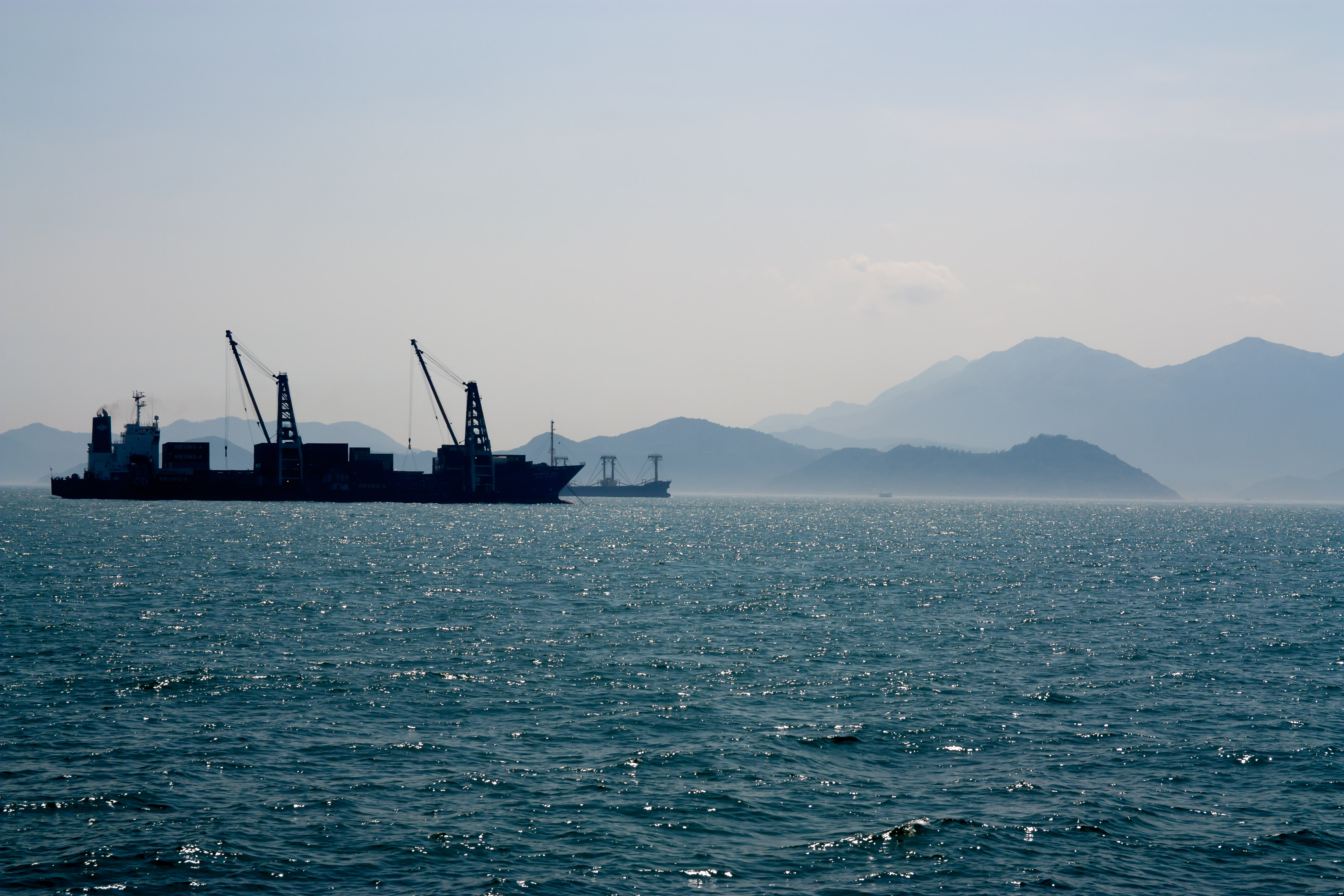
I personally didn’t need to go very far to see nature each evening however. I was staying right next to a wonderful beach up in the new territories – a very peaceful spot in the evenings.
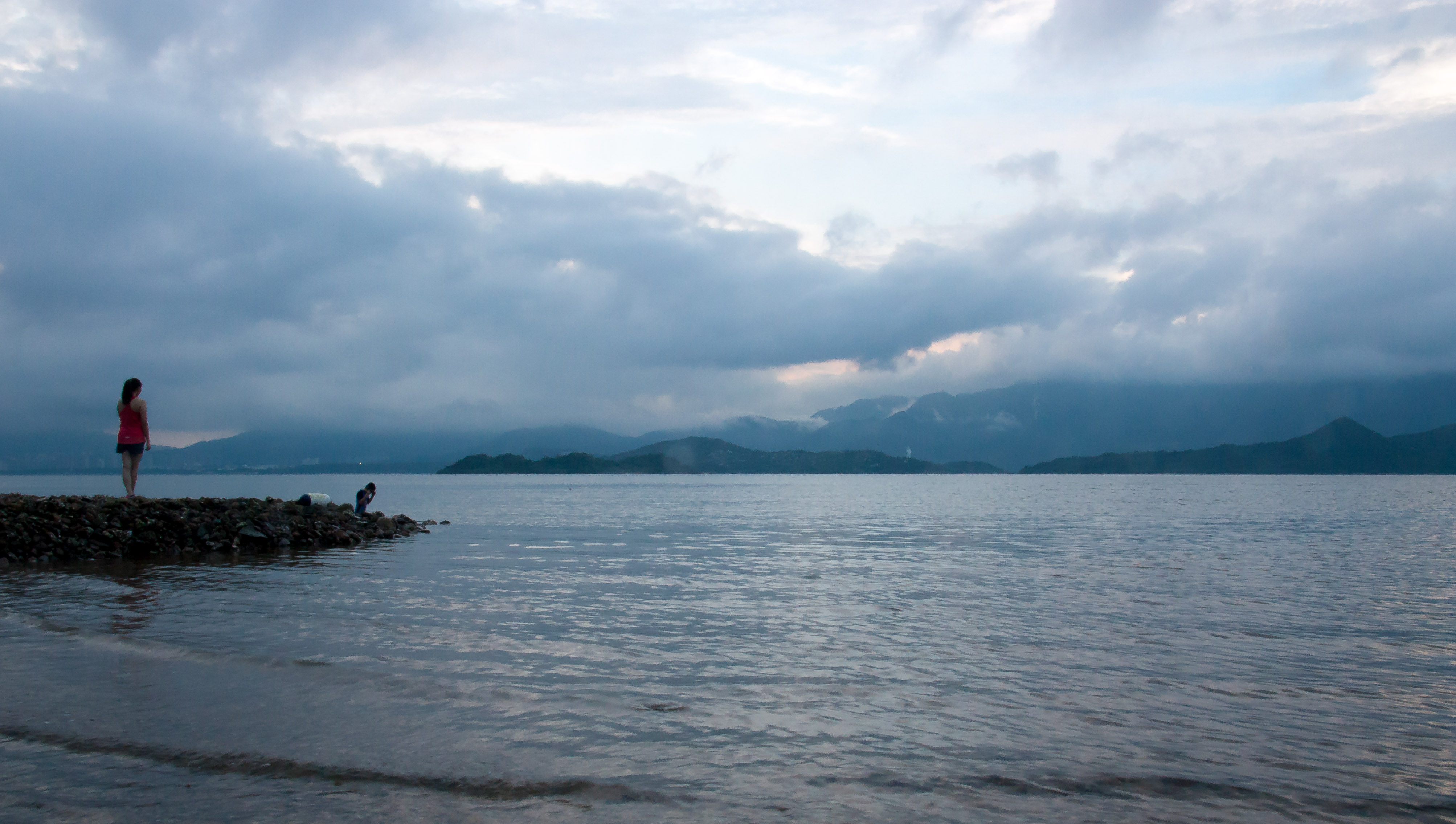
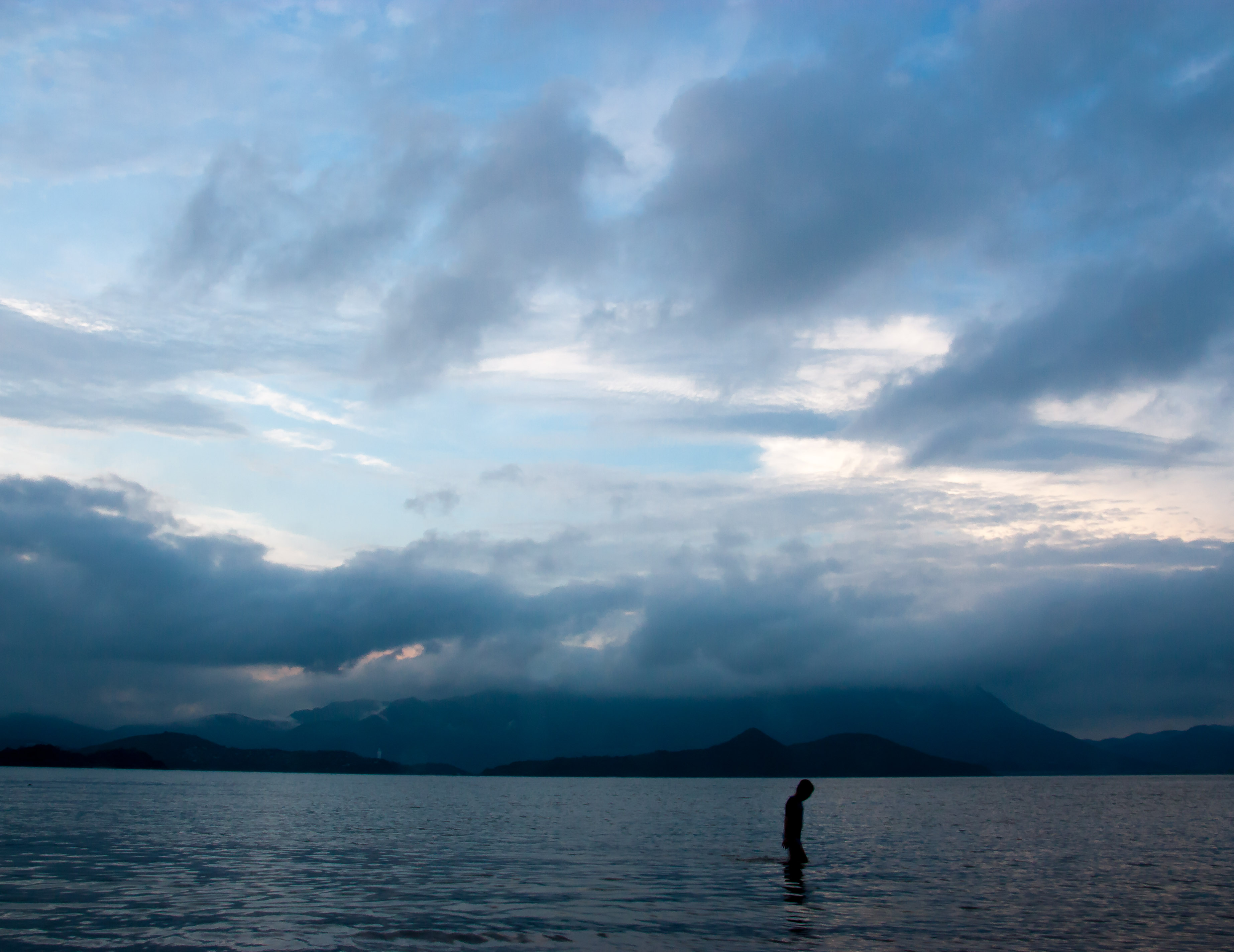
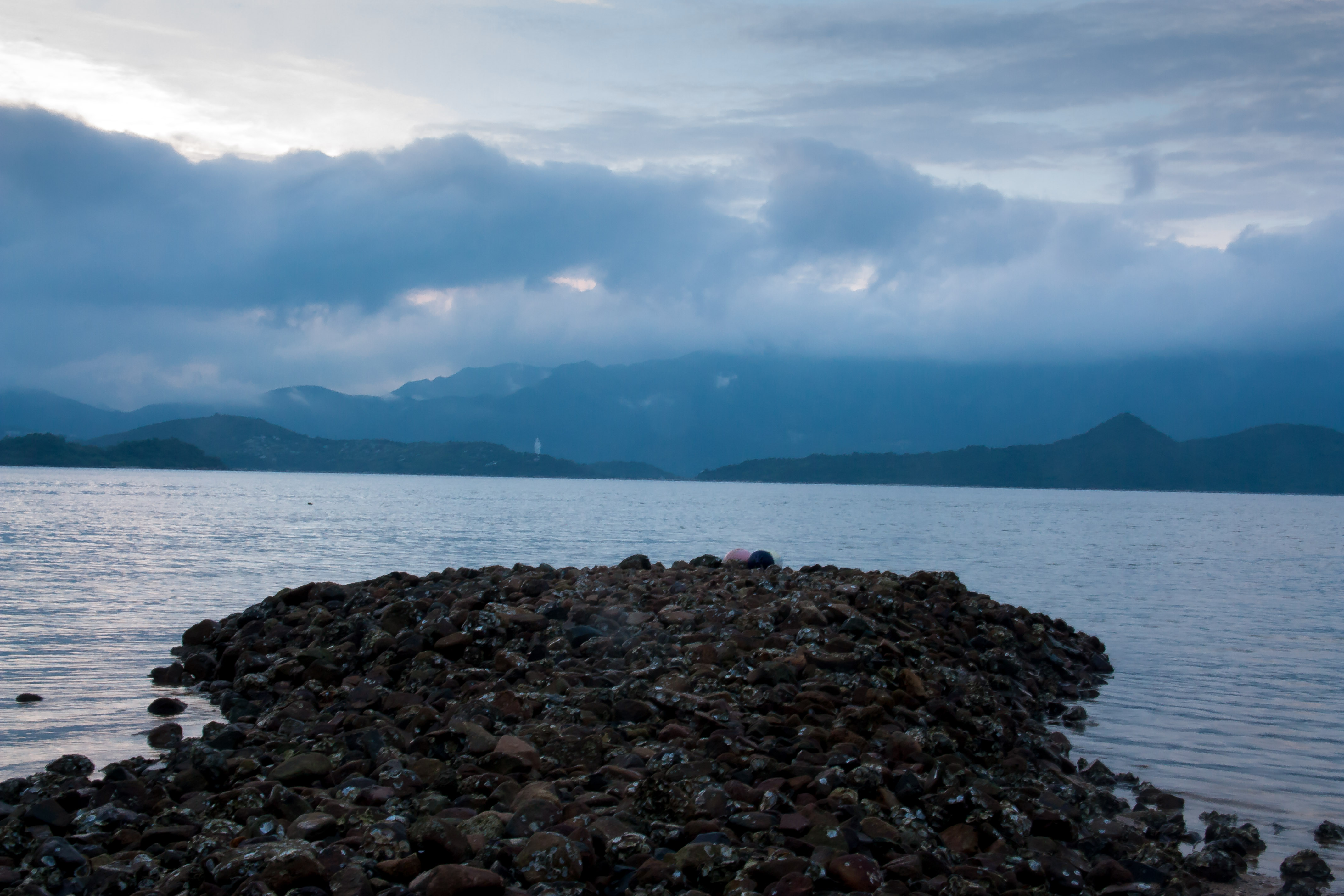
Hong Kong is, then, not just skyscrapers and endless bustle. It’s a beautiful place.
.
Just to finish, I’ll leave you with a few oddities I found in the schools I worked in.
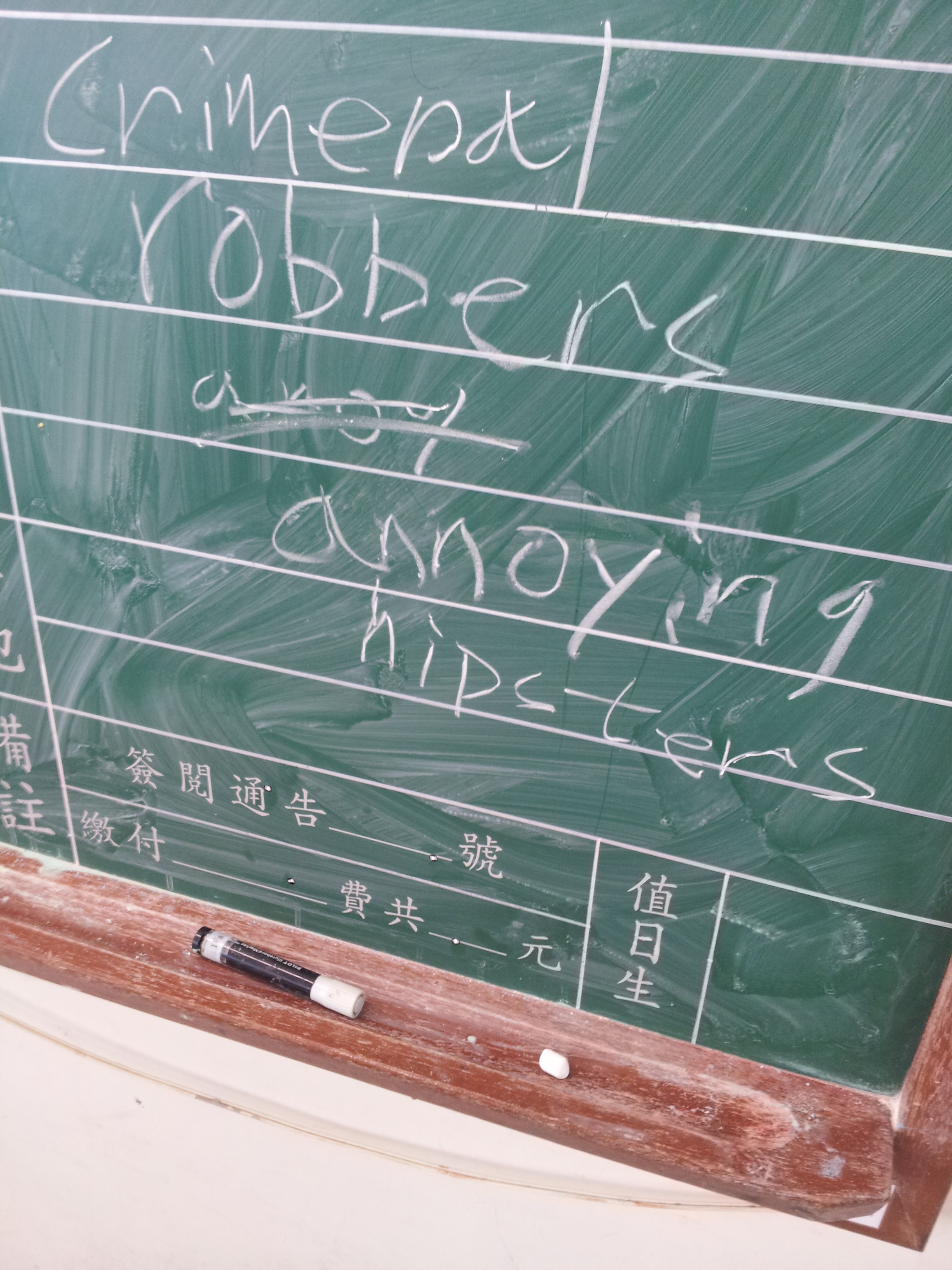
Hong Kong kids apparently place ‘annoying hipsters’ amongst the worst of criminals. I better not spend too long in Hong Kong.
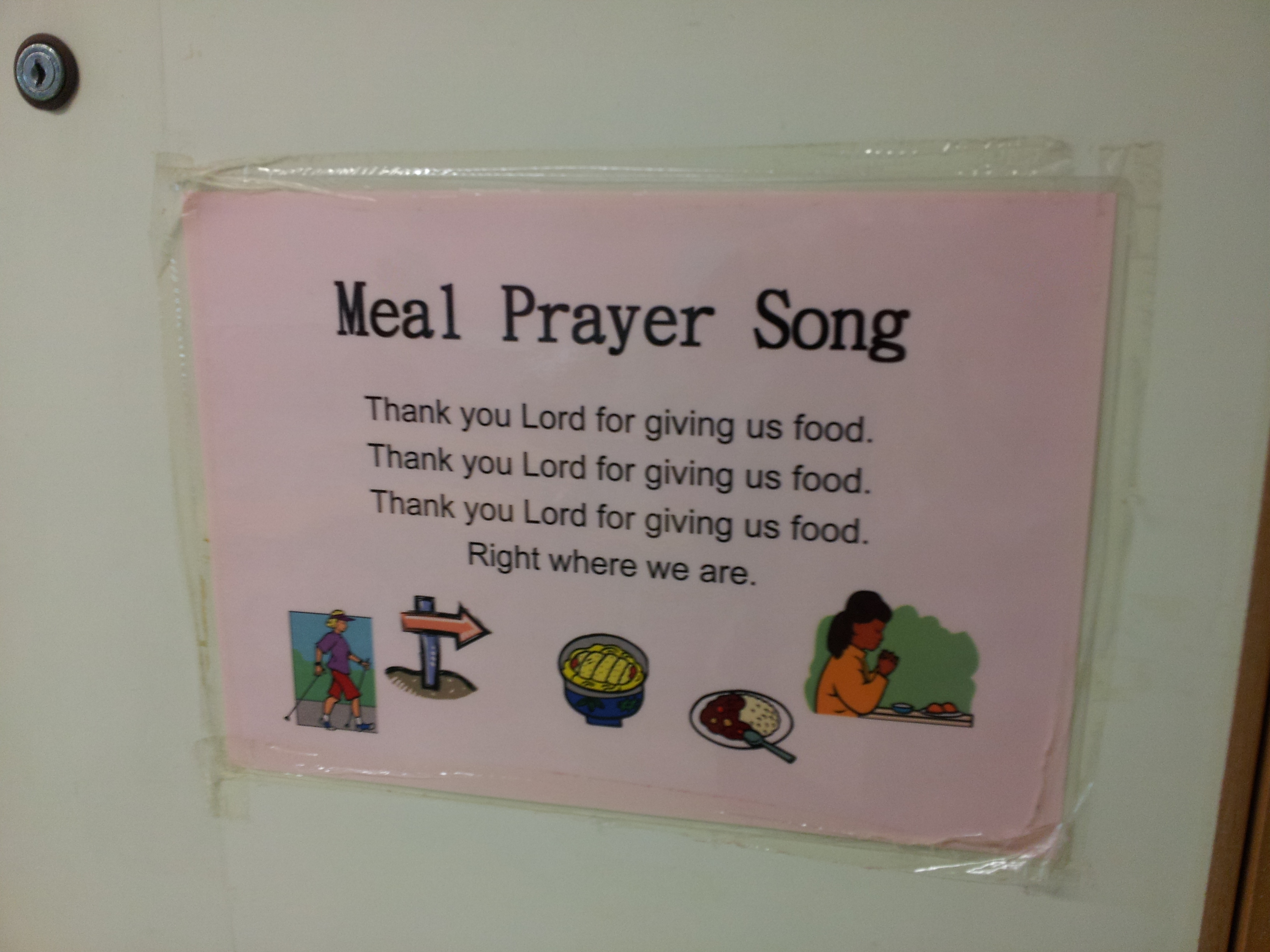
People in China are known for loving their food, but I felt this prayer at the front door of every classroom emphasised that a bit.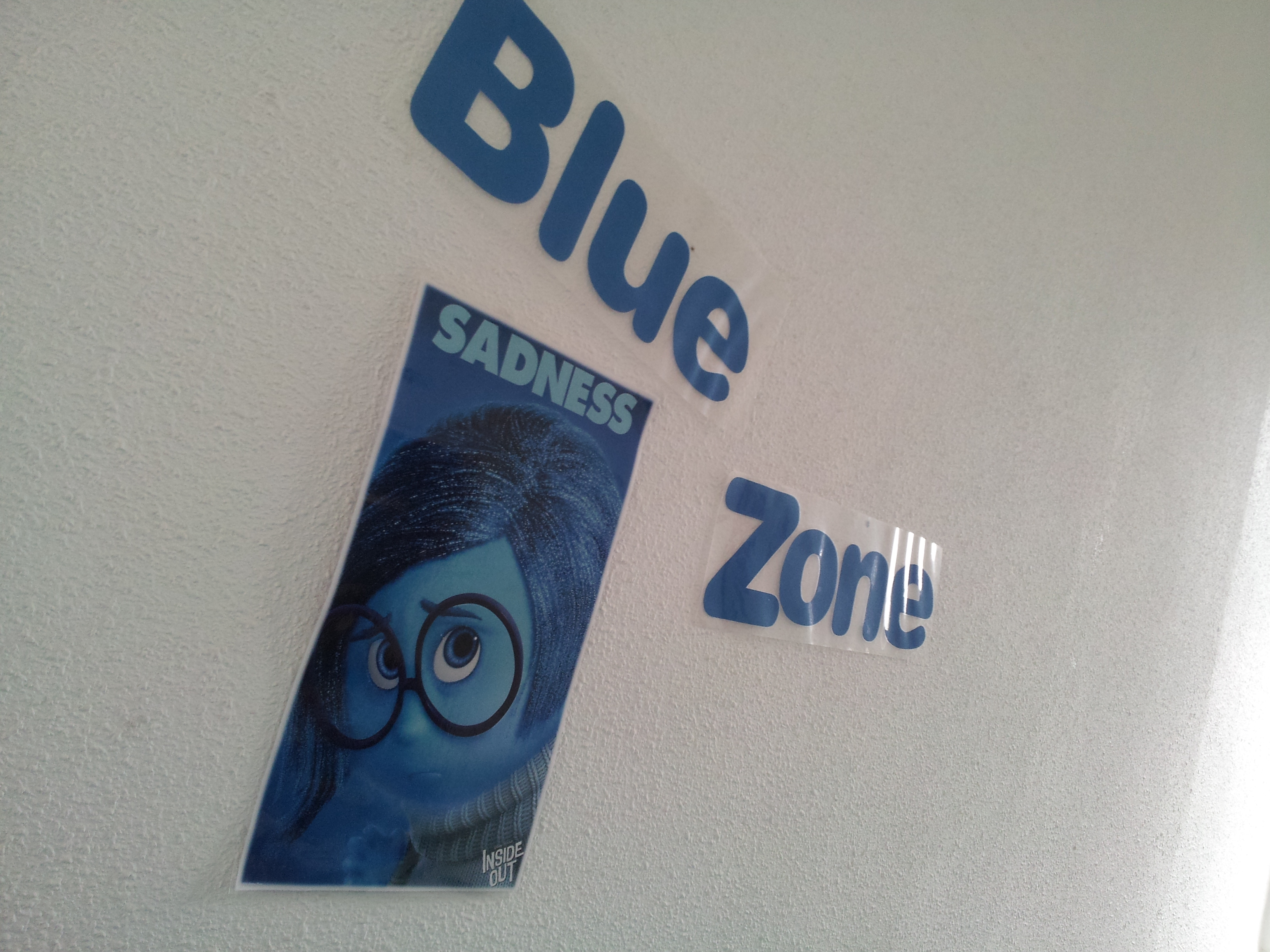
If I were running a primary school, I would have coloured teams. I would not have a team based on a disney character called ‘sadness’. No no no.

